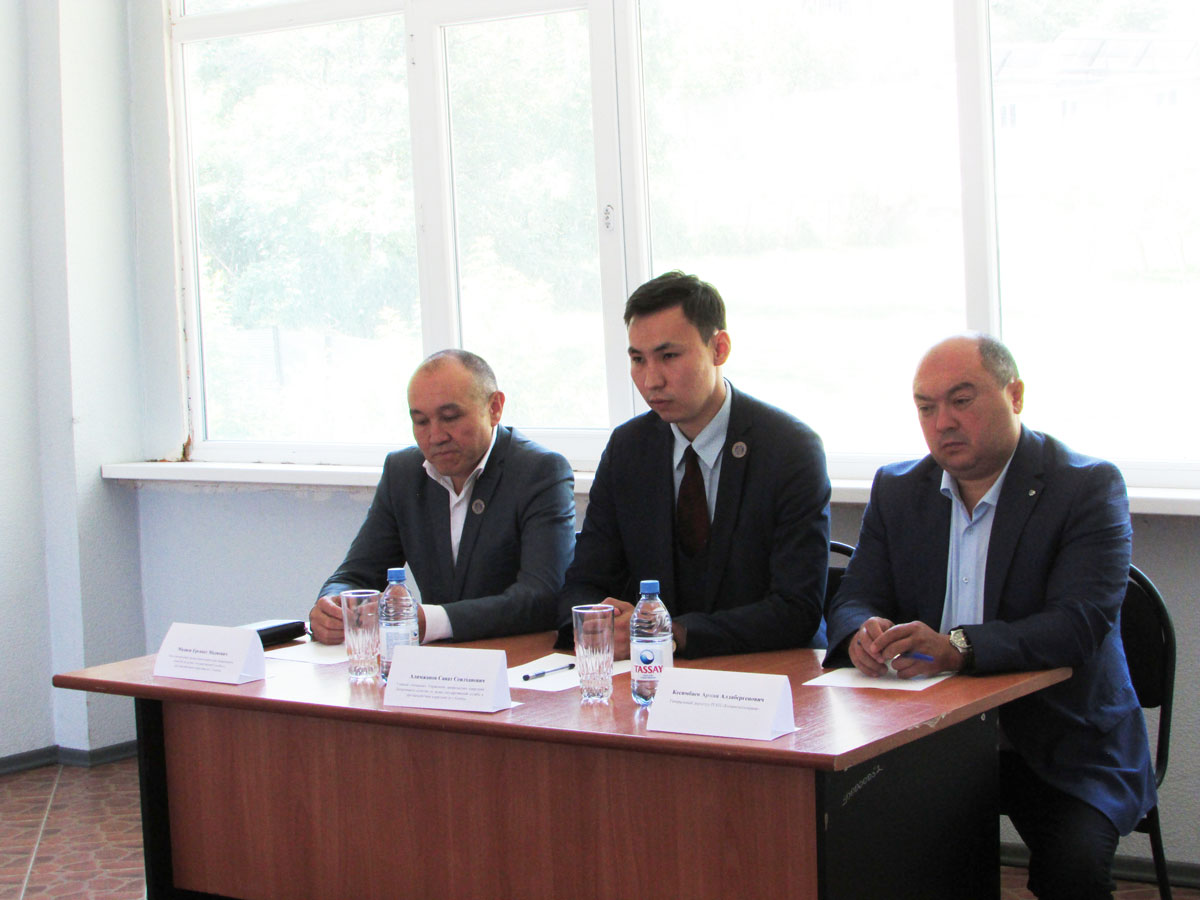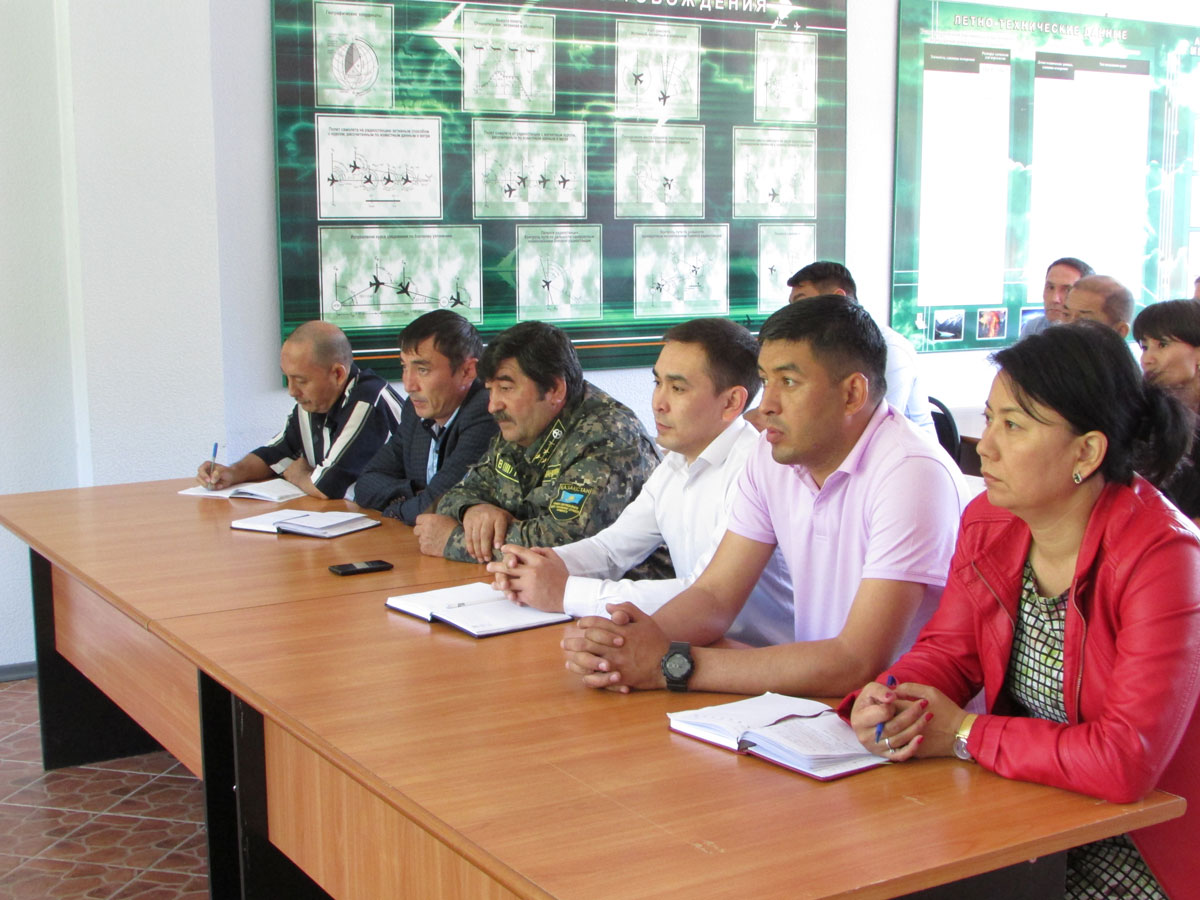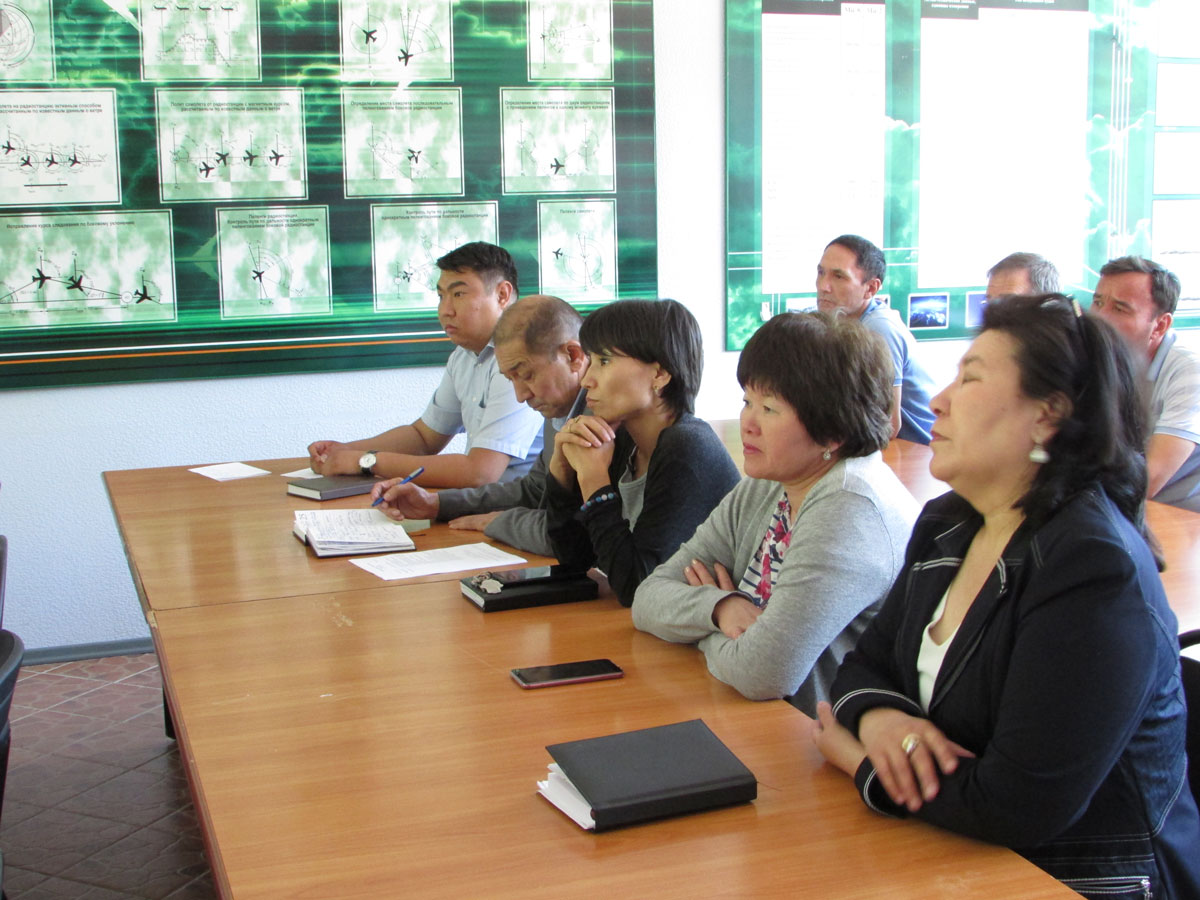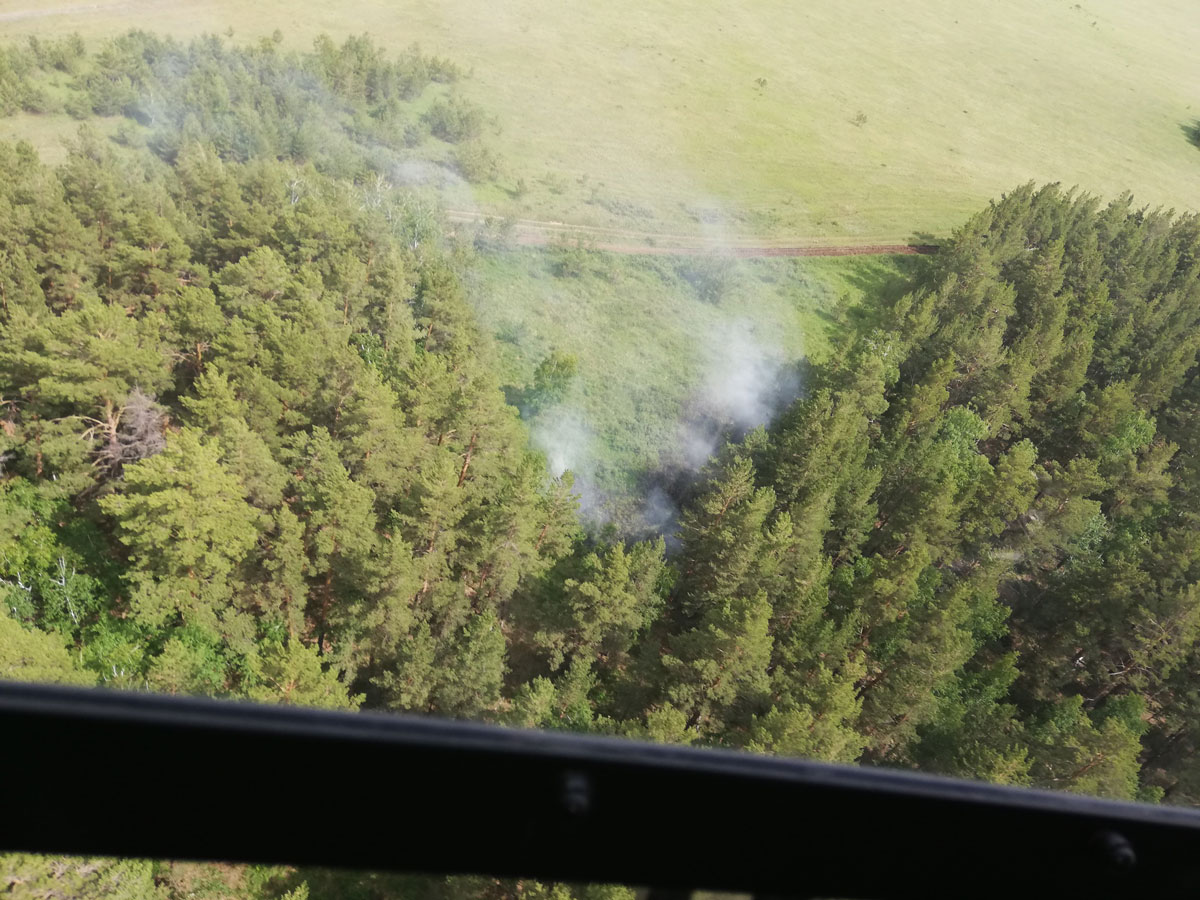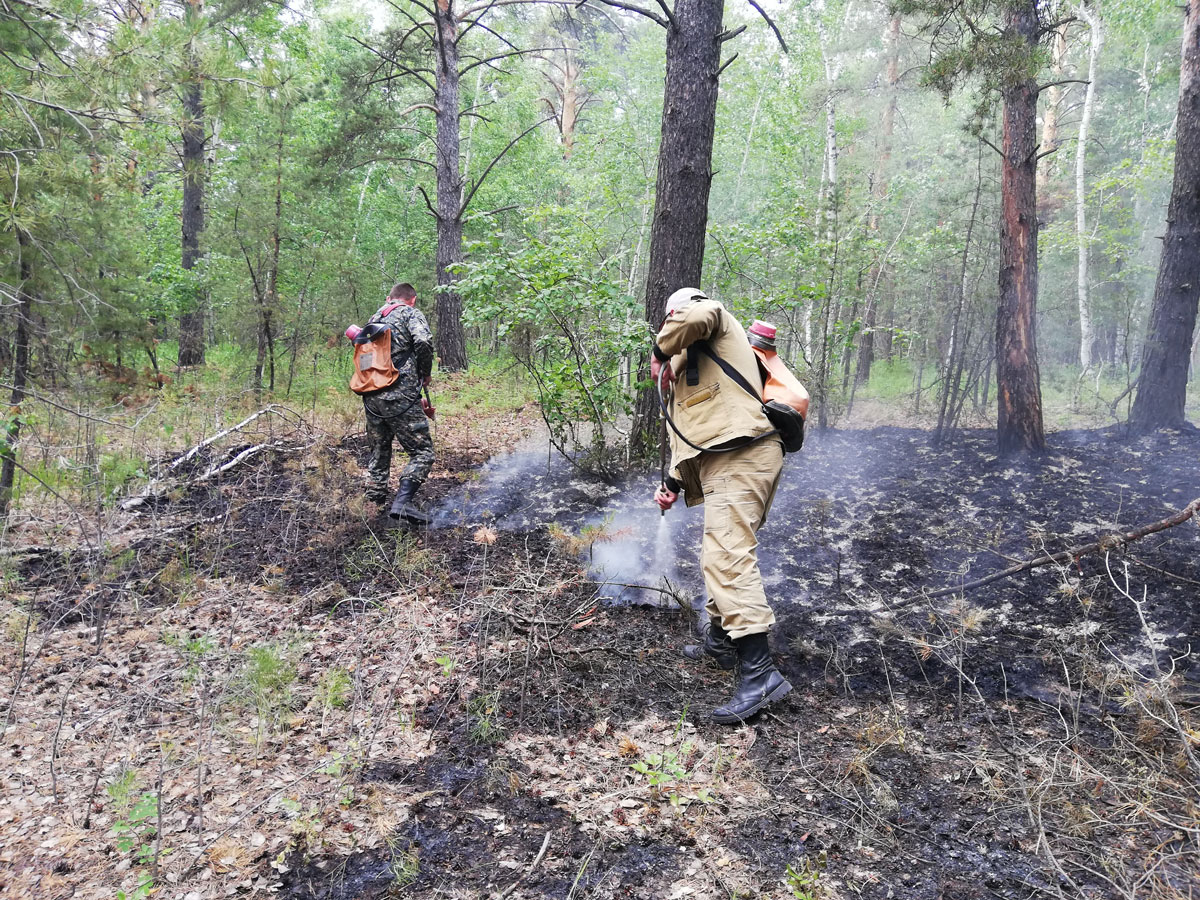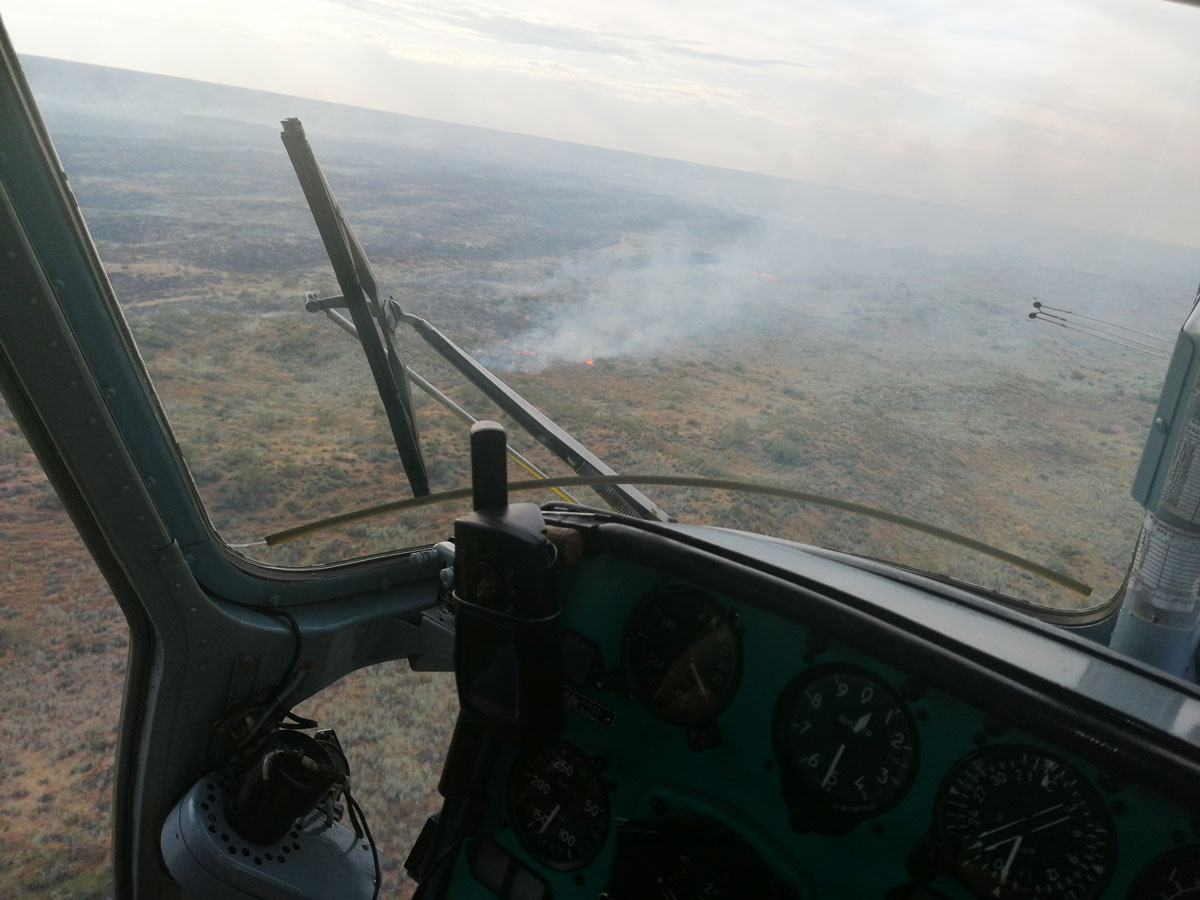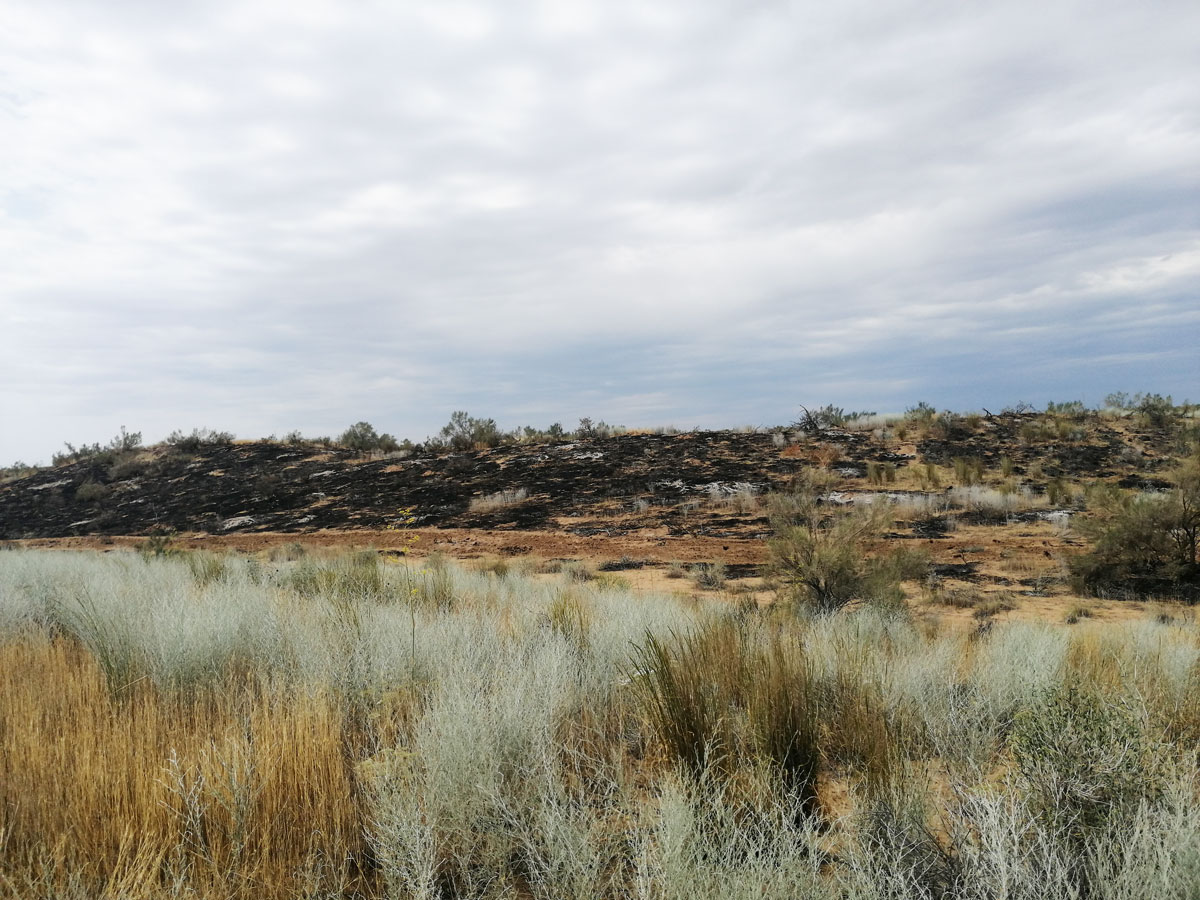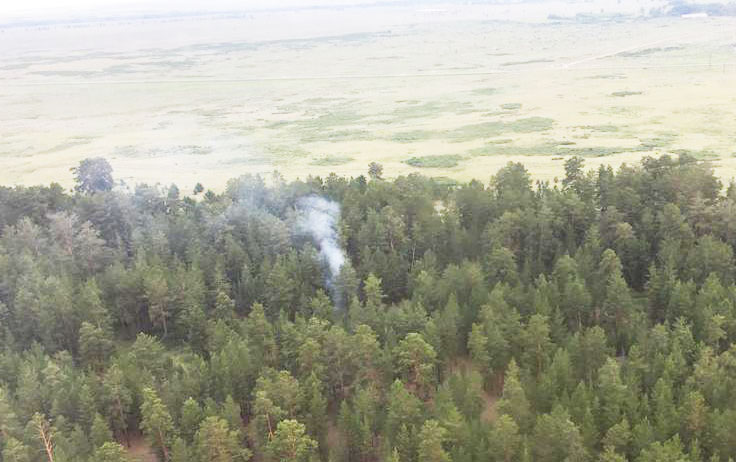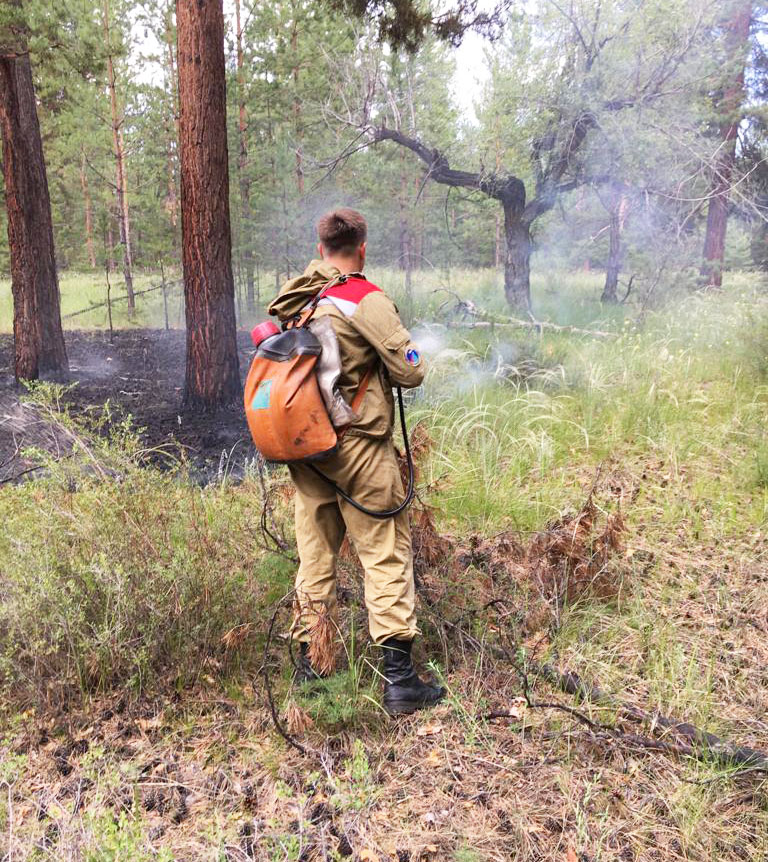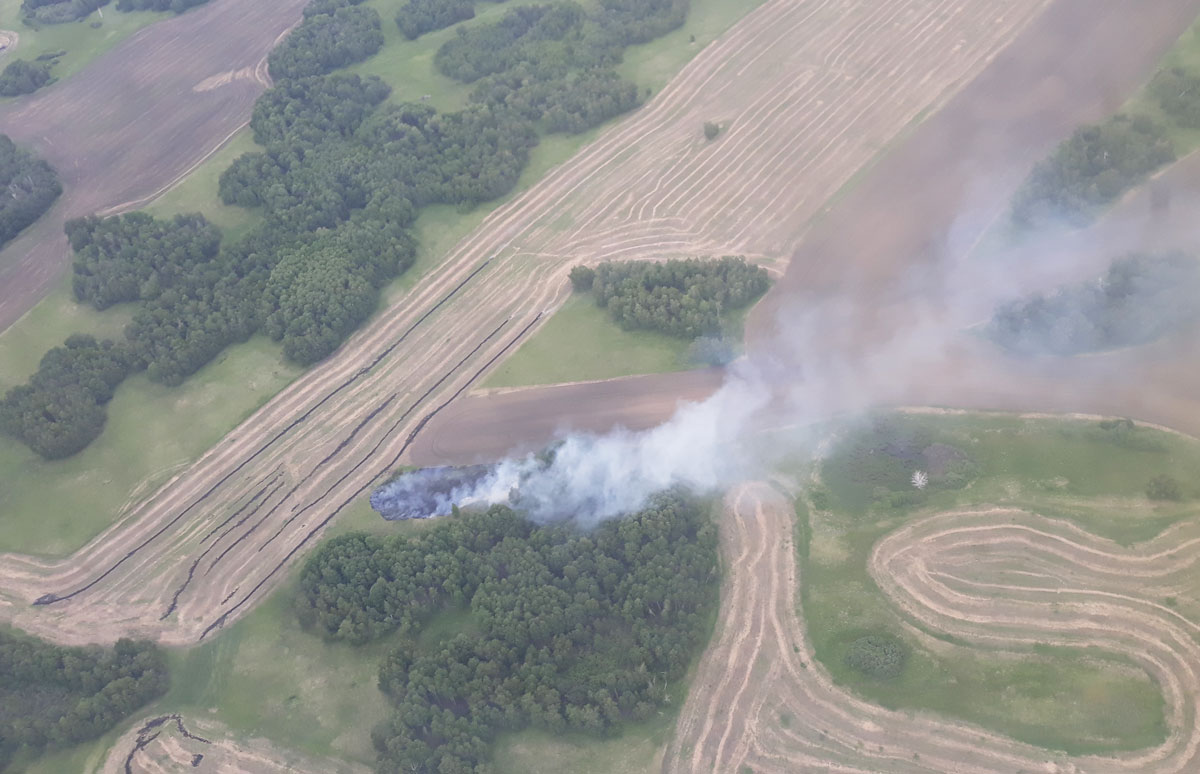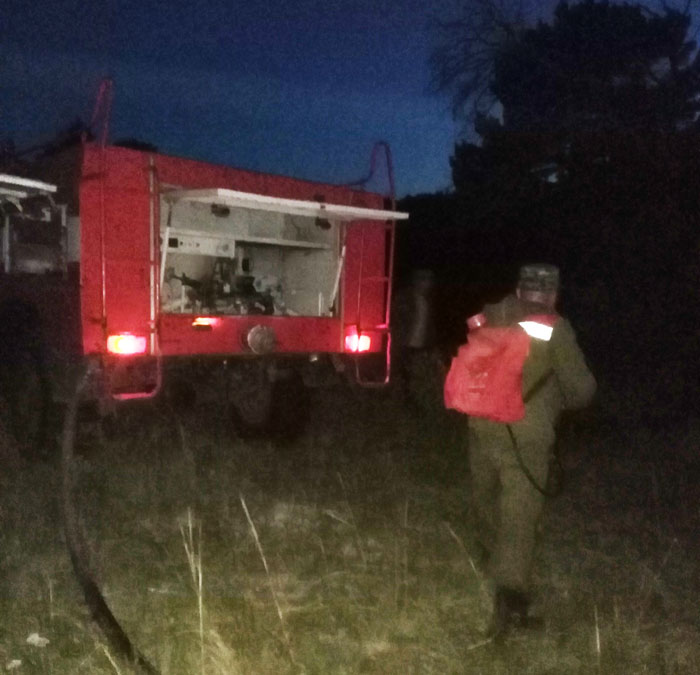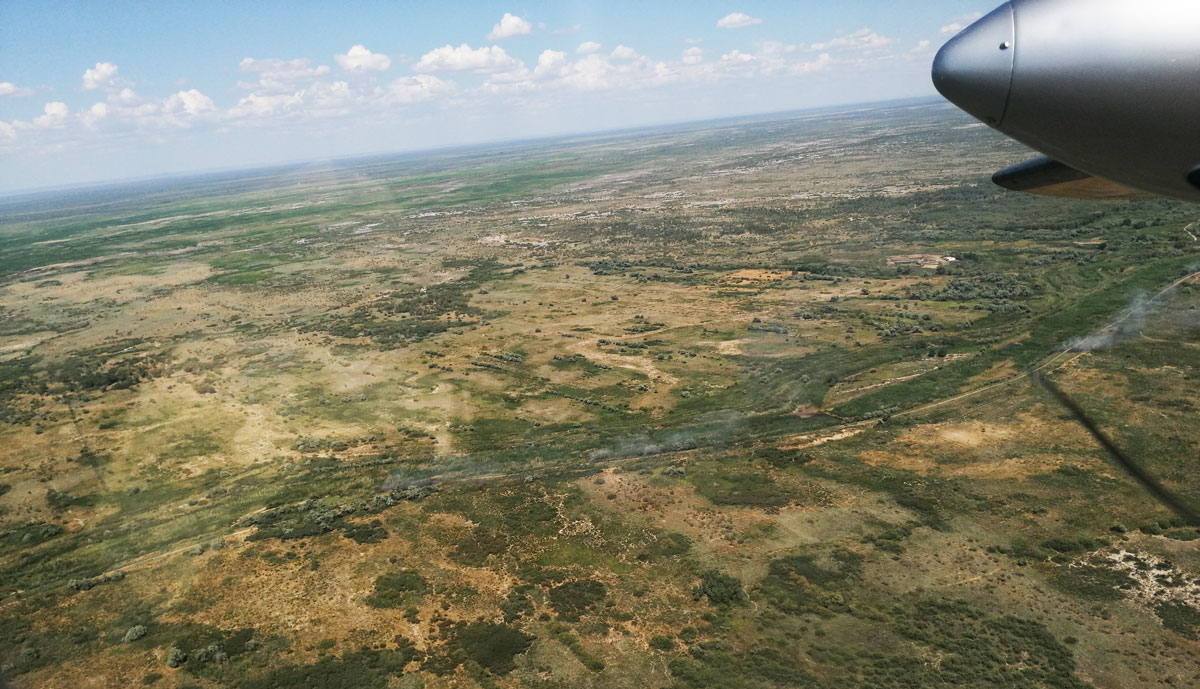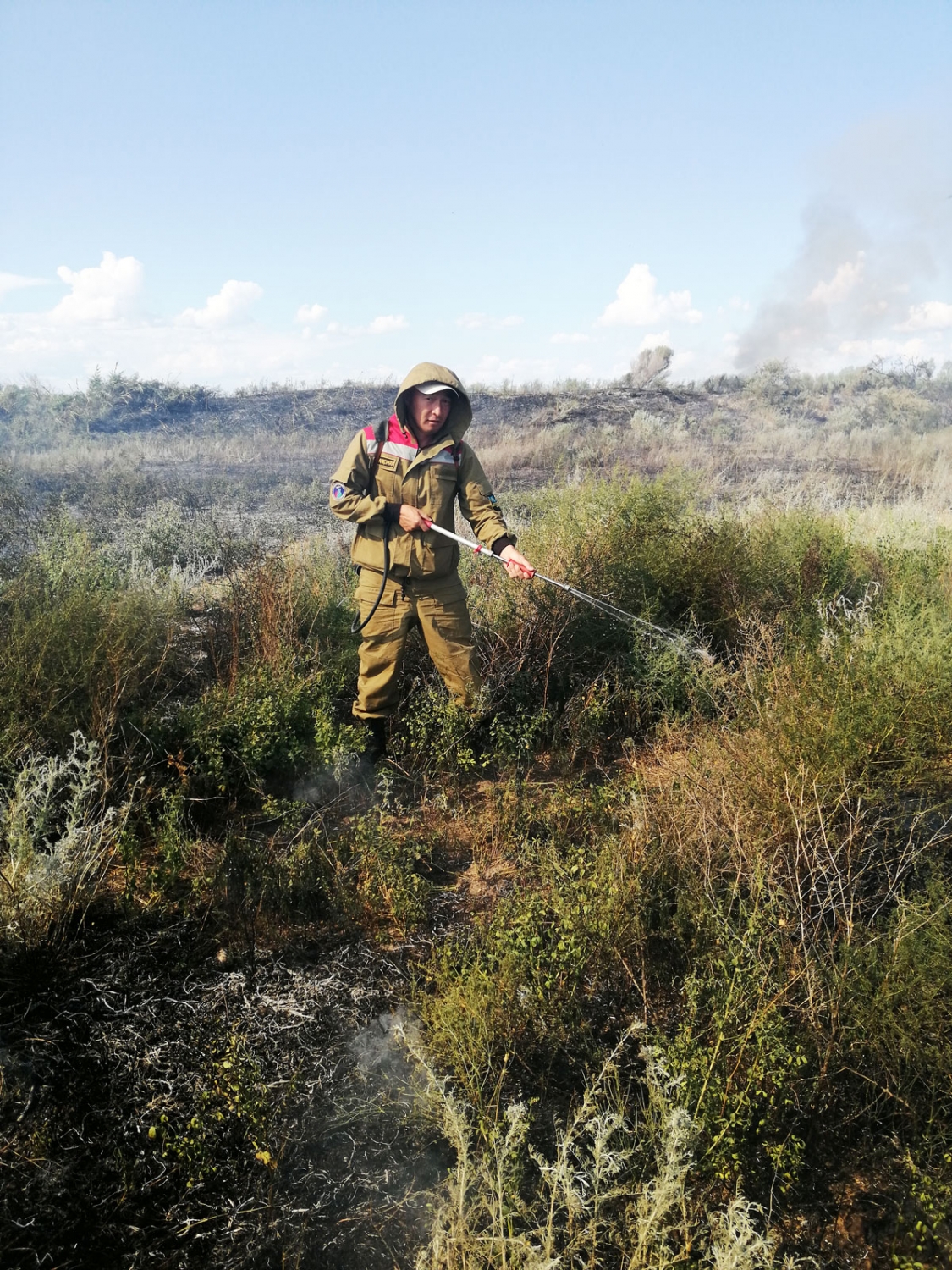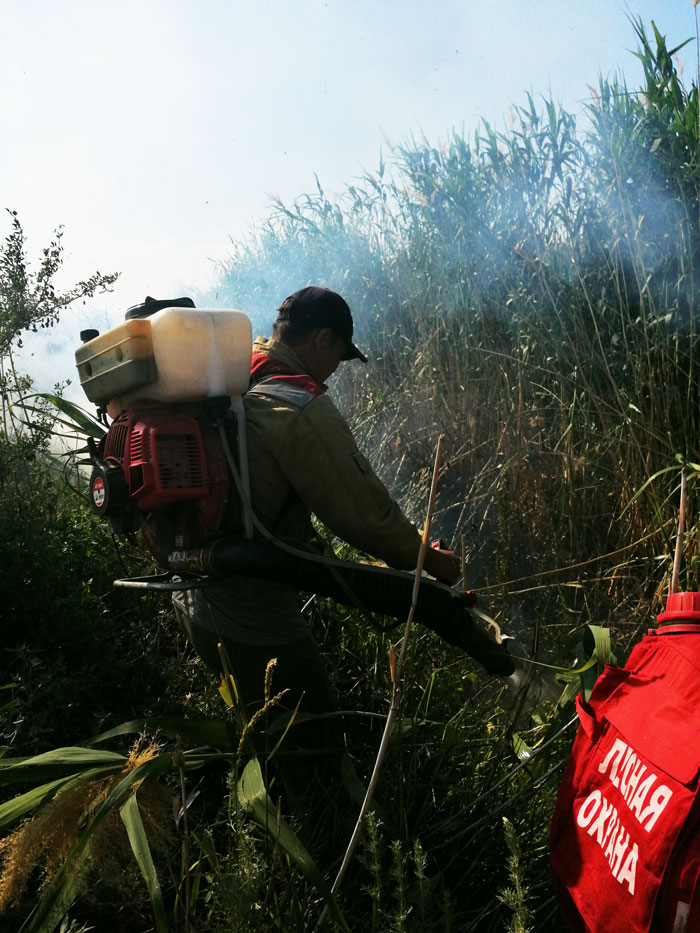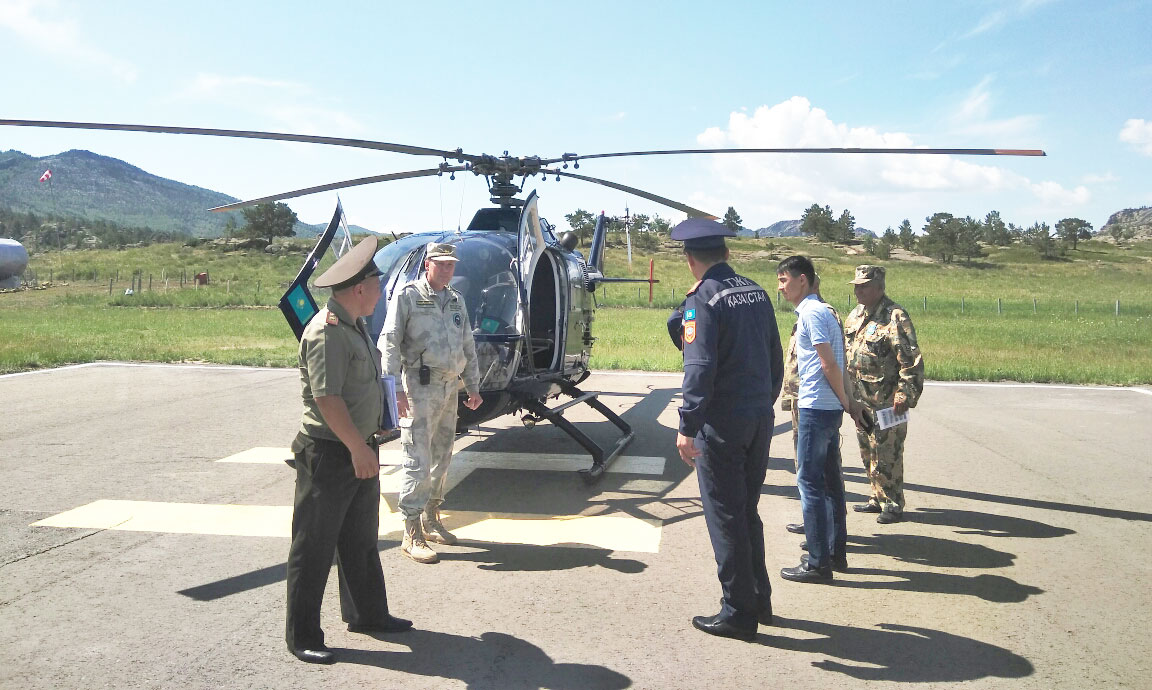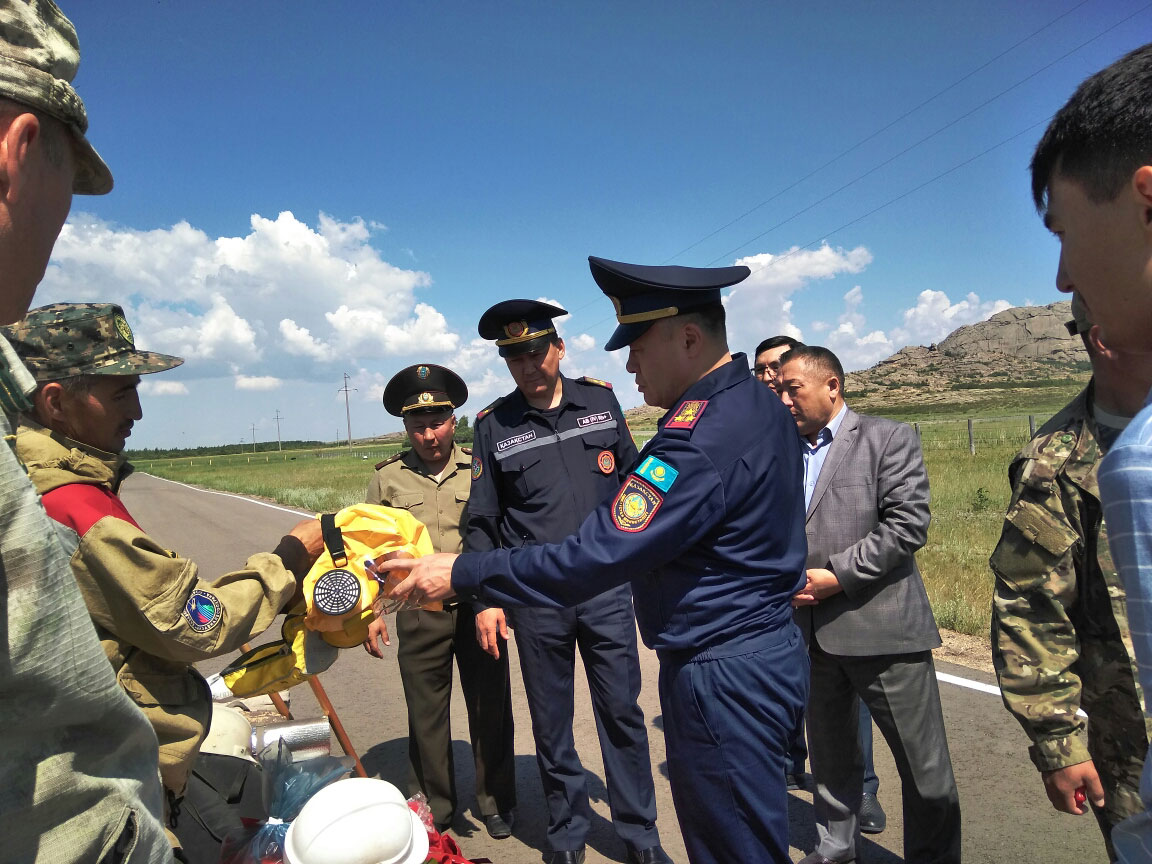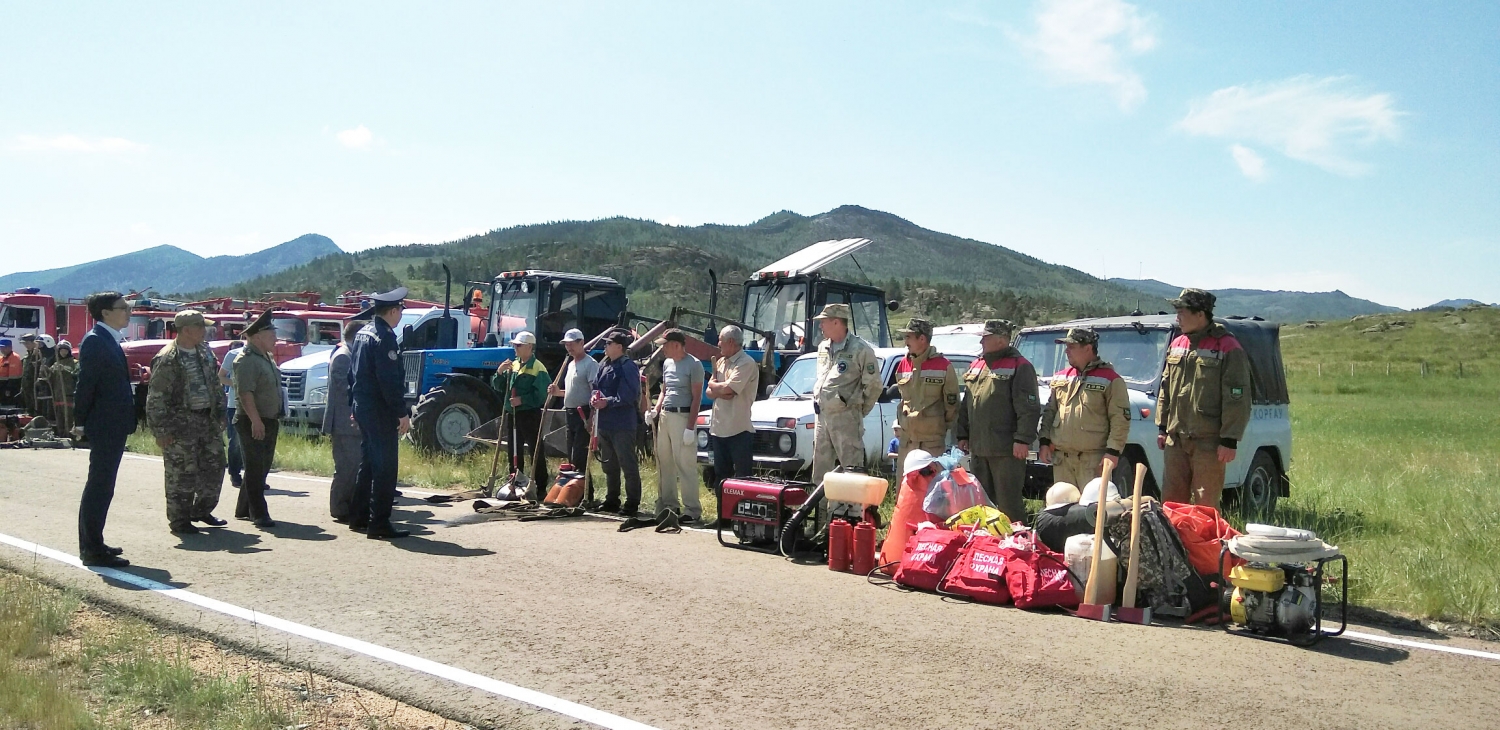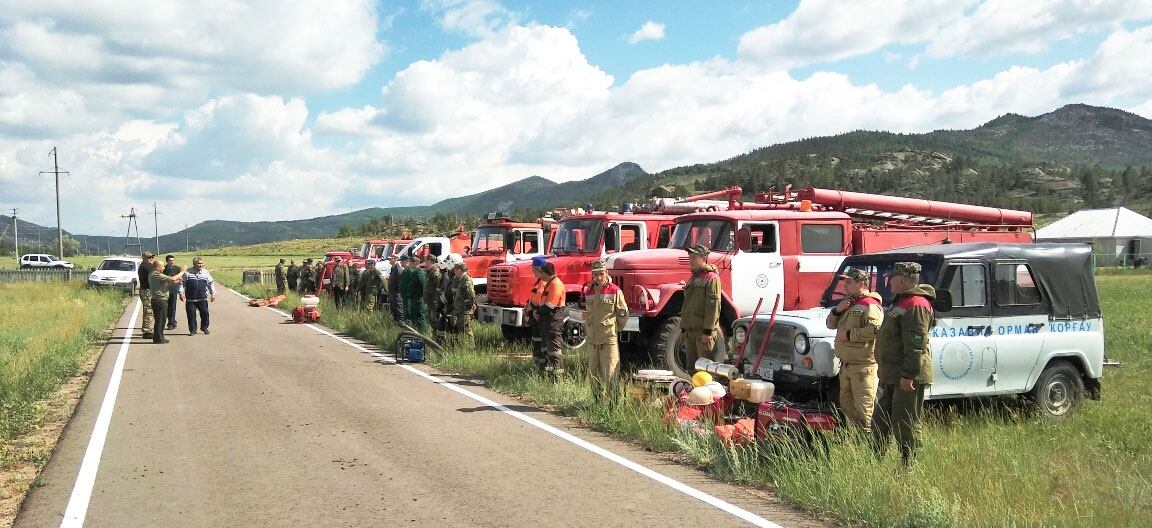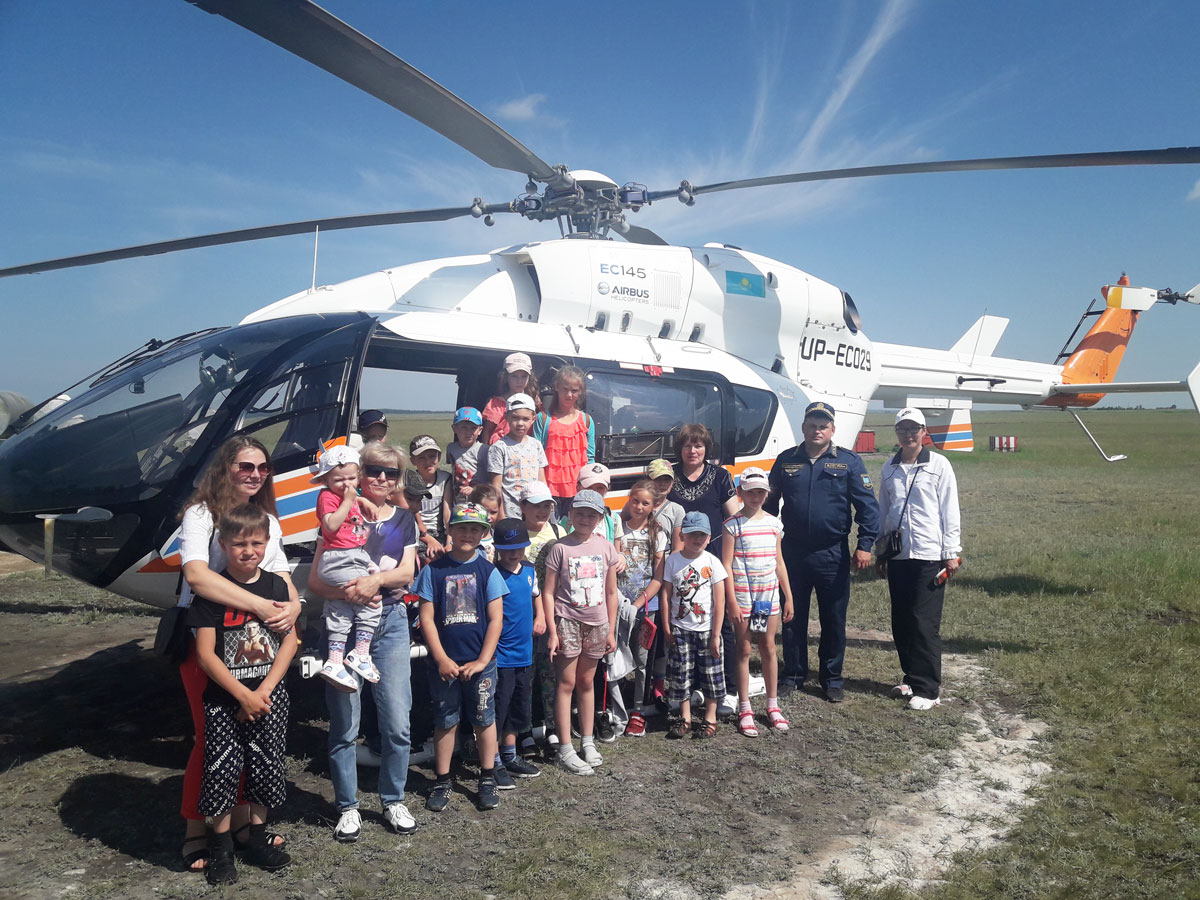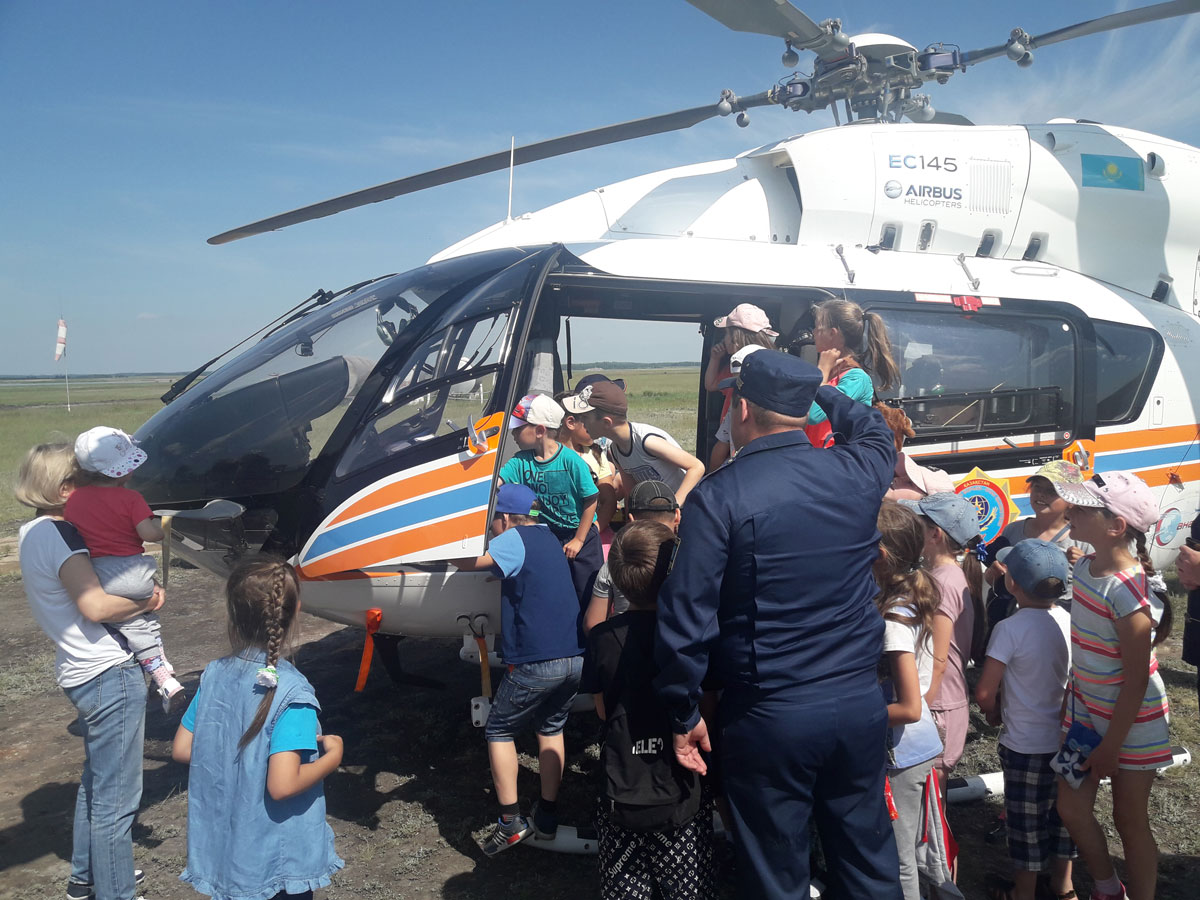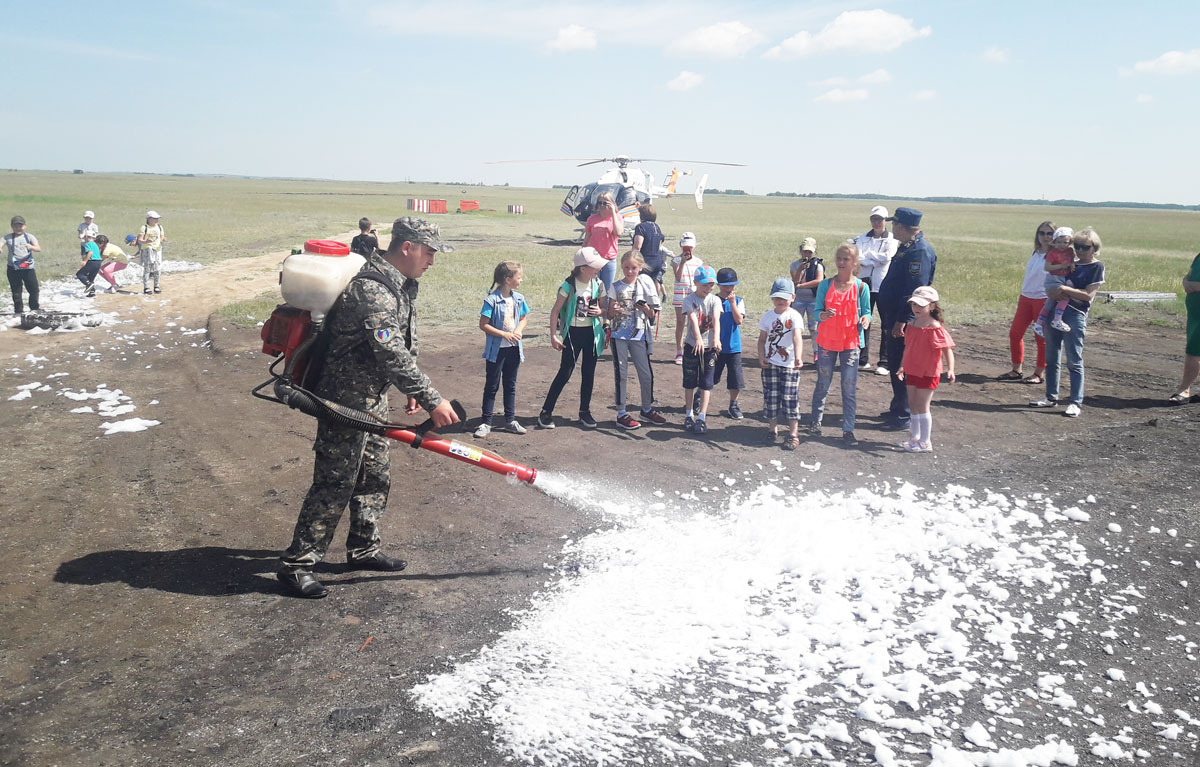Kazavialesoohrana - firefighters from nature
The unique structure of nature protection in Kazakhstan, which for decades has been fighting forest and steppe fires, winning every meter. Cancer on Mount found out how everything works in the Almaty subdivision.
Aviation protection of forests in Kazakhstan as an independent structure, also known as Kazavialesoukhrana, was established in 1978. The first units opened in the most dangerous areas in the fire industry: Pavlodar, Semipalatinsk and East Kazakhstan. Currently, there are 15 aviation departments in the republic.
Sergey Polyakov, Head of the Aviation Fire Service of the State Enterprise "Kazavialesoohrana":
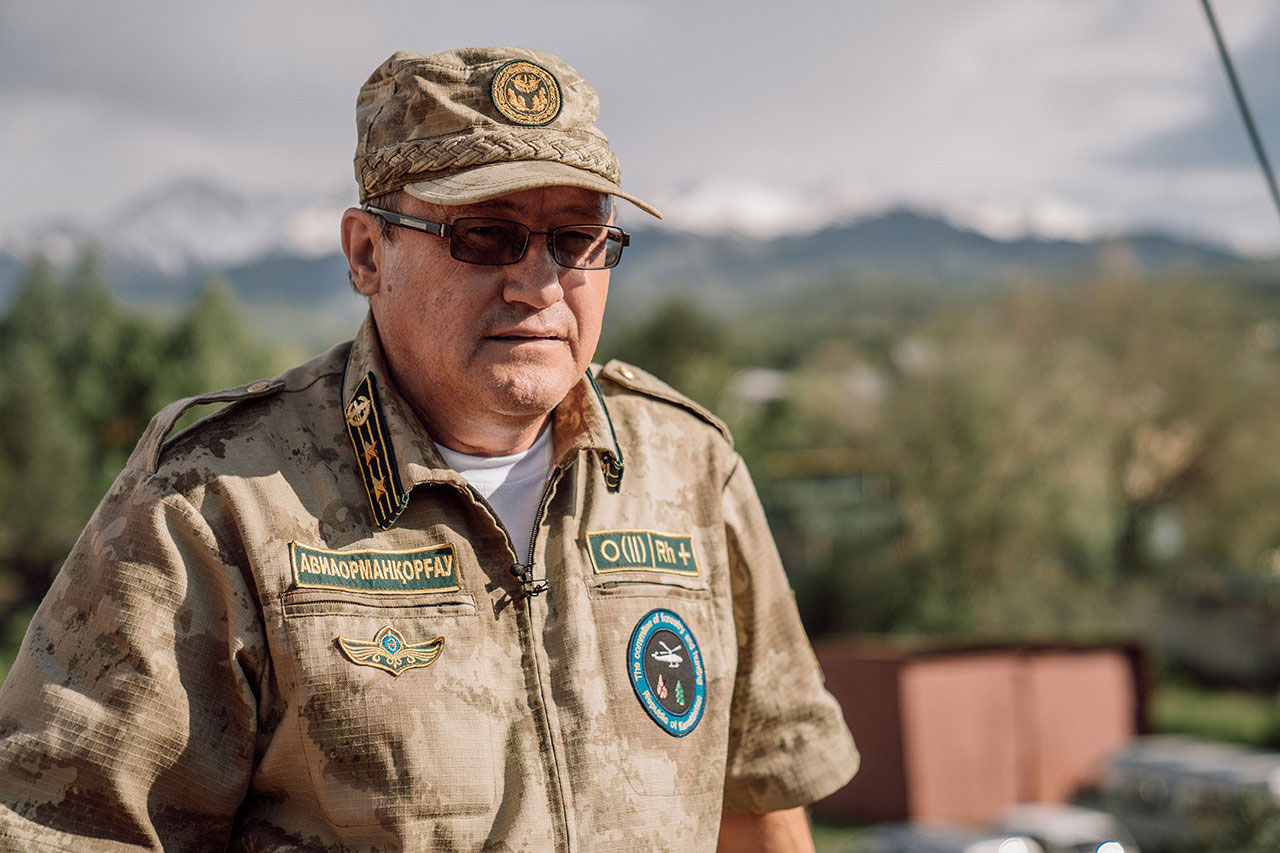

About the structure
Avialesoohrana is a single structure that unites 15 aviation departments in the Republic of Kazakhstan, each employing from 10 to 25 people. We protect 8 million 869 thousand hectares, which is only 30% of the entire state forest fund. Only the specially protected forests of the country are protected - national natural parks, reserves and state reserves.
About daily work
I have been working in aviation protection since the ninetieth year. By education - a forestry engineer. Forests need constant protection from human activity. Planting a forest and not guarding it is pointless. Therefore, we work under the auspices of forestry. Working days consist of monitoring, which actively begins in a fire-hazardous period - the beginning of spring, all summer and until late autumn. First of all, the fire situation is assessed in the morning, the level of threat, and after the air crew is sent to patrol the area along the route. On board is an observer pilot who scans the area within a radius of up to 60 km along the route and can determine in time and accurately whether he sees smoke, dust, a dust storm, or a fire. This is the first part of the task being performed on the route - the detection and determination of the exact location of the source of ignition. The route is designed to cover the entire protected area as much as possible.
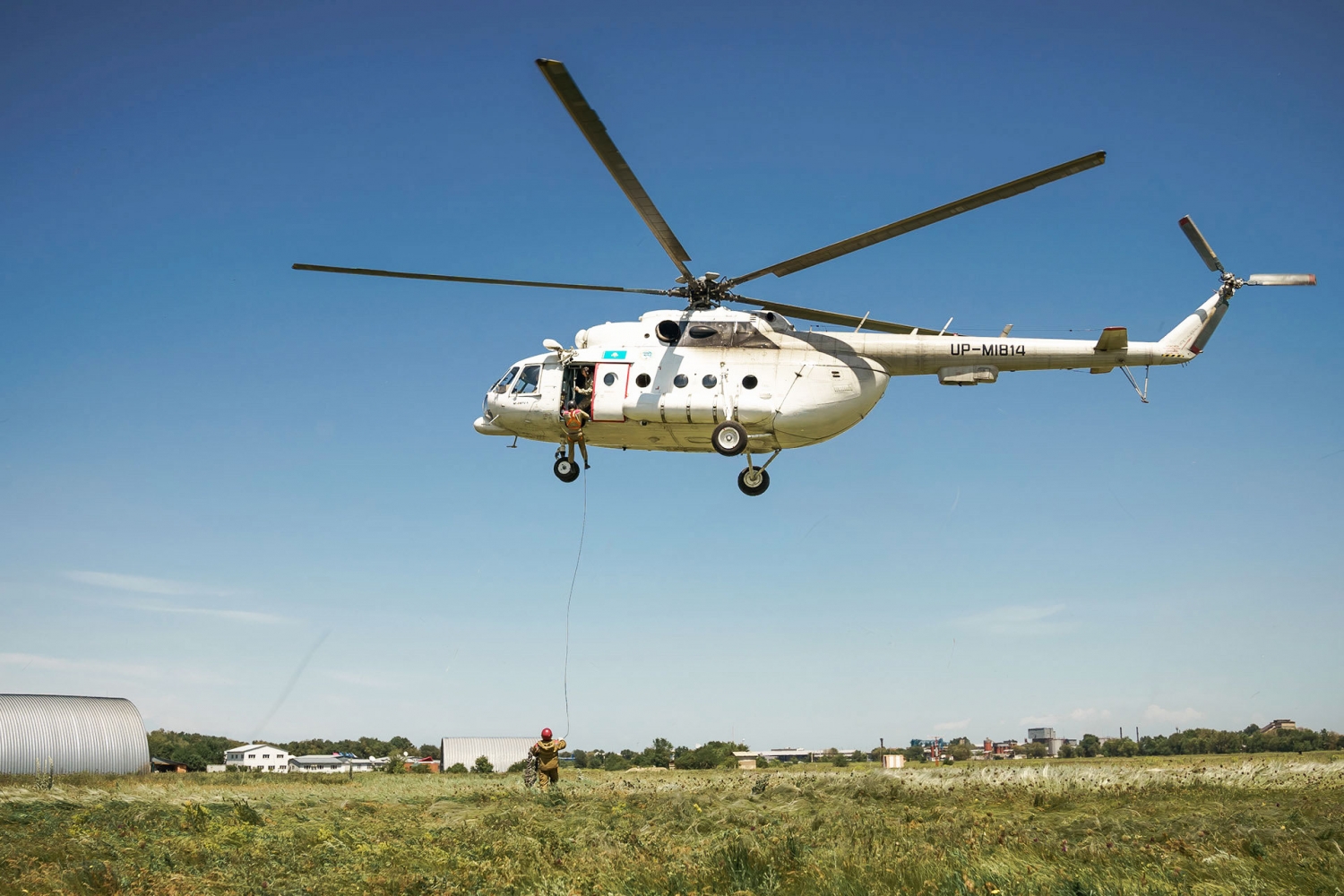
In the case when a 2-3 class helicopter went on patrol, there is already an amphibious group of three people on board with water and fire extinguishing equipment. The pilot-observer independently makes a decision and the procedure for extinguishing, selects the landing site, the paratrooper-firefighters disembark and start working, at the same time a signal is sent to the republican dispatch service about the fire that has occurred. Since the discovery, as a rule, there are a few minutes to extinguish the fire, otherwise it goes out of control. Usually wind and heat work against us. When a fire is localized, it is transmitted to ground services for its further maintenance and hiding in order to avoid re-ignition. This system provides rapid response and suppression with low losses. It happens that a fire occurs at night, when aviation does not work. As a rule, such fires turn into uncontrollable natural disaster, with which several people simply can not cope.
The lost forest is practically not returned, you need 100 years at least to recover. In conditions of drought and sharply continental climate, the forest is recovering extremely slowly.
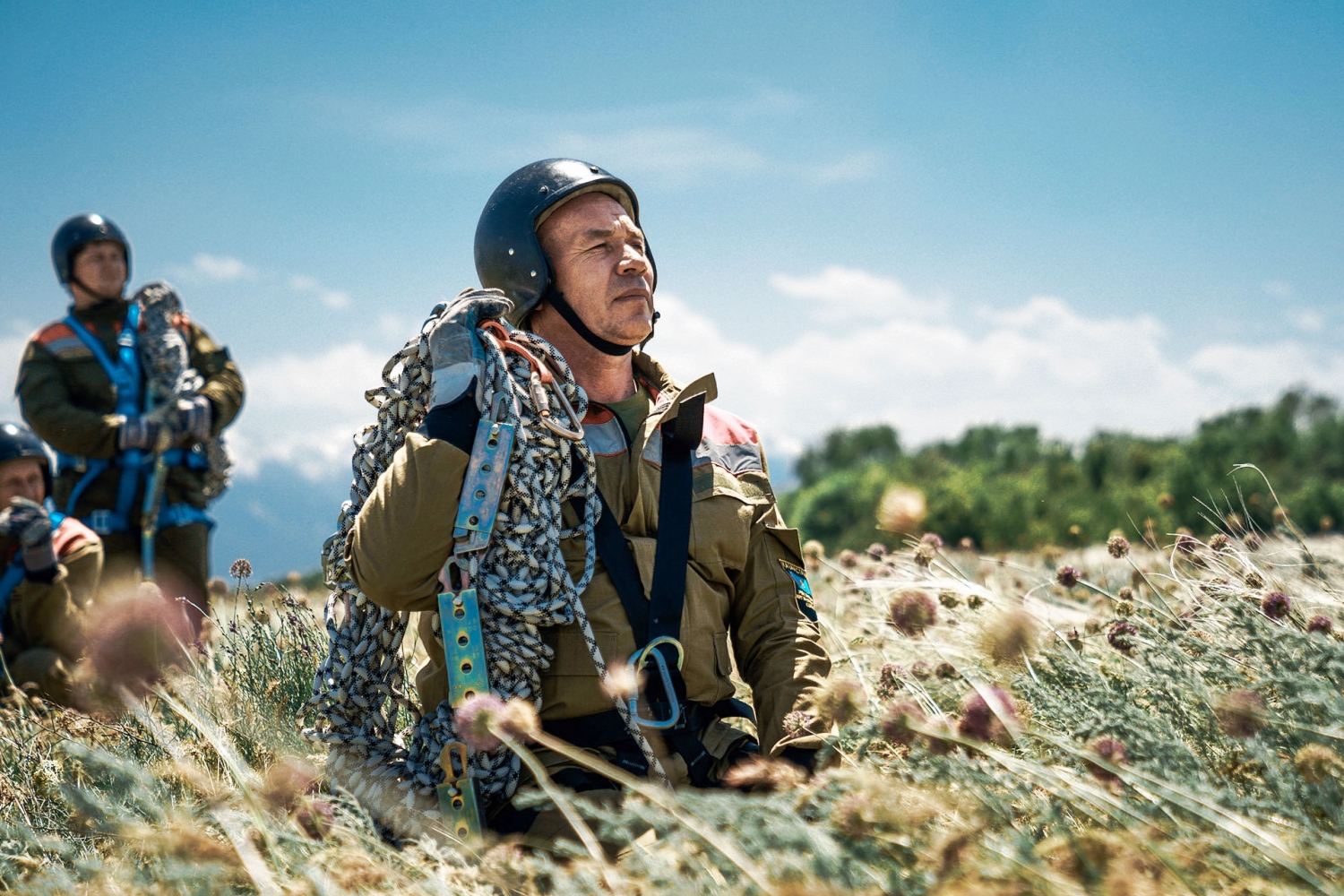

About the causes of fire
In the first, and second place - a man. Now everyone is mobile and very often travel to nature, and do not always follow the rules of behavior in the forest or steppe. Sometimes the action is unintended, simple negligence. For example, they made a fire or burned garbage after a rest and left ember. The wind blew, got on the grass or reeds, and that's a fire. A common case is an unequipped agricultural machinery, when a person left to mow hay, and the tractor is not equipped with a spark arrester and a fire started from a spark. The man left, did not even notice, and after 15-20 minutes the steppe was already burning. In spring or autumn, it is common practice to burn last year’s grass. A person thinks that he quickly gets rid of old grass, but in fact brings a lot of damage to the environment. The earth becomes lifeless. In winter, tourists make a fire. If the fire burns for 1.5-2 hours, it burns through the soil, and the microflora and microfauna die. At this place remains the dead earth, which in the spring turns into earthen mud, flowing into rivers, forms landslides. And this is from small fires, but imagine what happens when the forest is burning. Any landslides are the consequences of former fires. Tourists often make a halt under the tree - it is always dry there, the bedding from the needles is very convenient, but travelers do not know that this layer is flammable. Therefore, under the forest canopy can not burn fire.
There is still a natural factor - dry thunderstorms, it is extremely rare in the forests of the Almaty region, but is quite common in certain regions, for example, the forests of the Irtysh, tape forests. The effect of dry thunderstorms is one of the frequent causes of fires. In the period from June to July, when atmospheric electricity accumulates, there is no moisture, discharges occur. The tree acts as a conductor of electricity, the discharge hits the trunk, and after about 5 minutes there is a fire from high temperatures. So there are terrible fires.
On the qualities of the paratrooper-fire
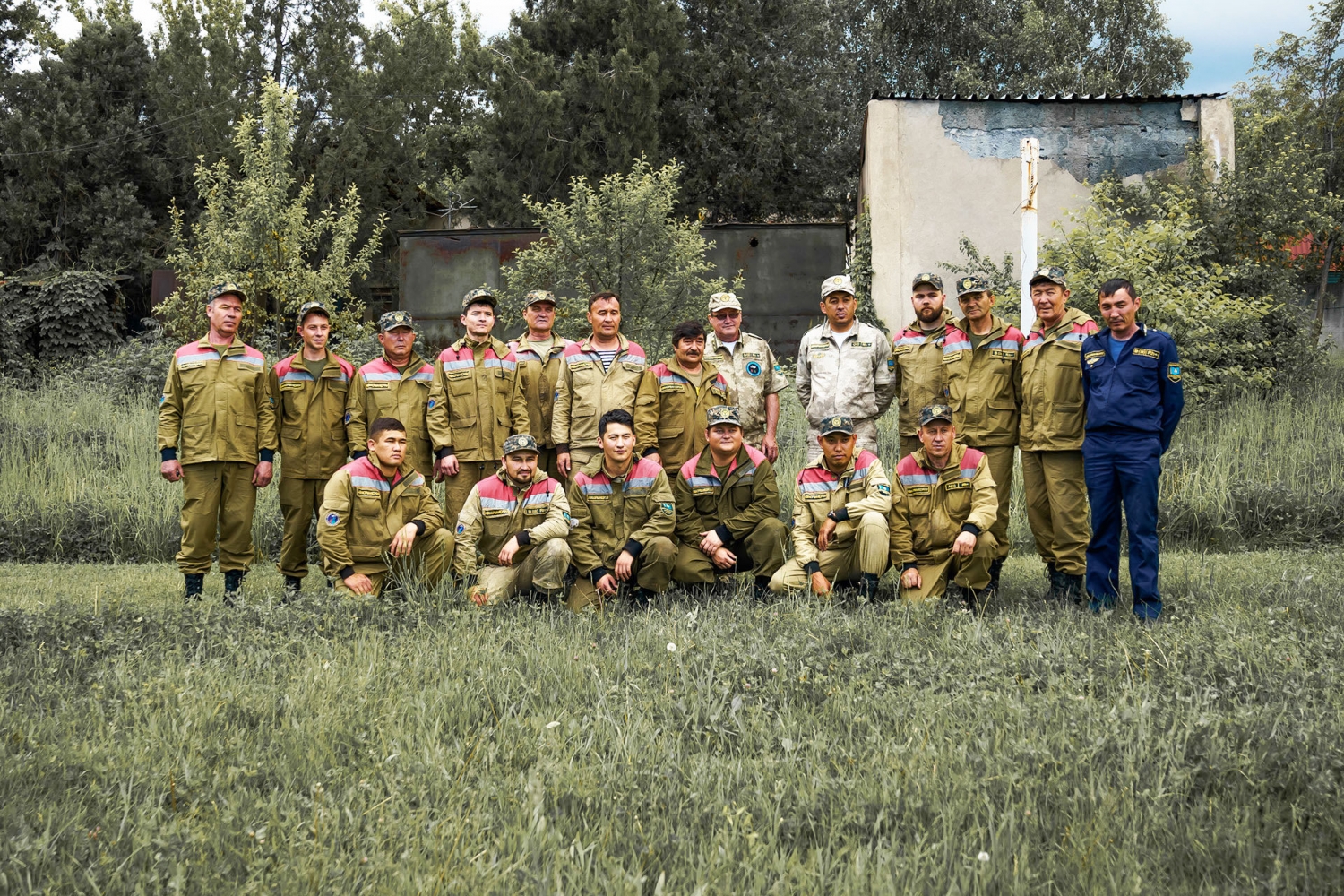

In our work, it is immediately obvious: if a person works, gives all of himself, then he performs the task. Initially, the work pulls extreme. This is a men's work that is associated with a risk to life. However, not everyone can withstand overload. It is hard to put out fires in principle, and in the forest you need to go uphill, around trees, rocks that may collapse. The psychological factor is also important: if a person panics, he can die. No matter how hard it is, it is necessary to remain calm, to understand where and in which direction to move.
About the fire on the mountain Mokhnatka 2012
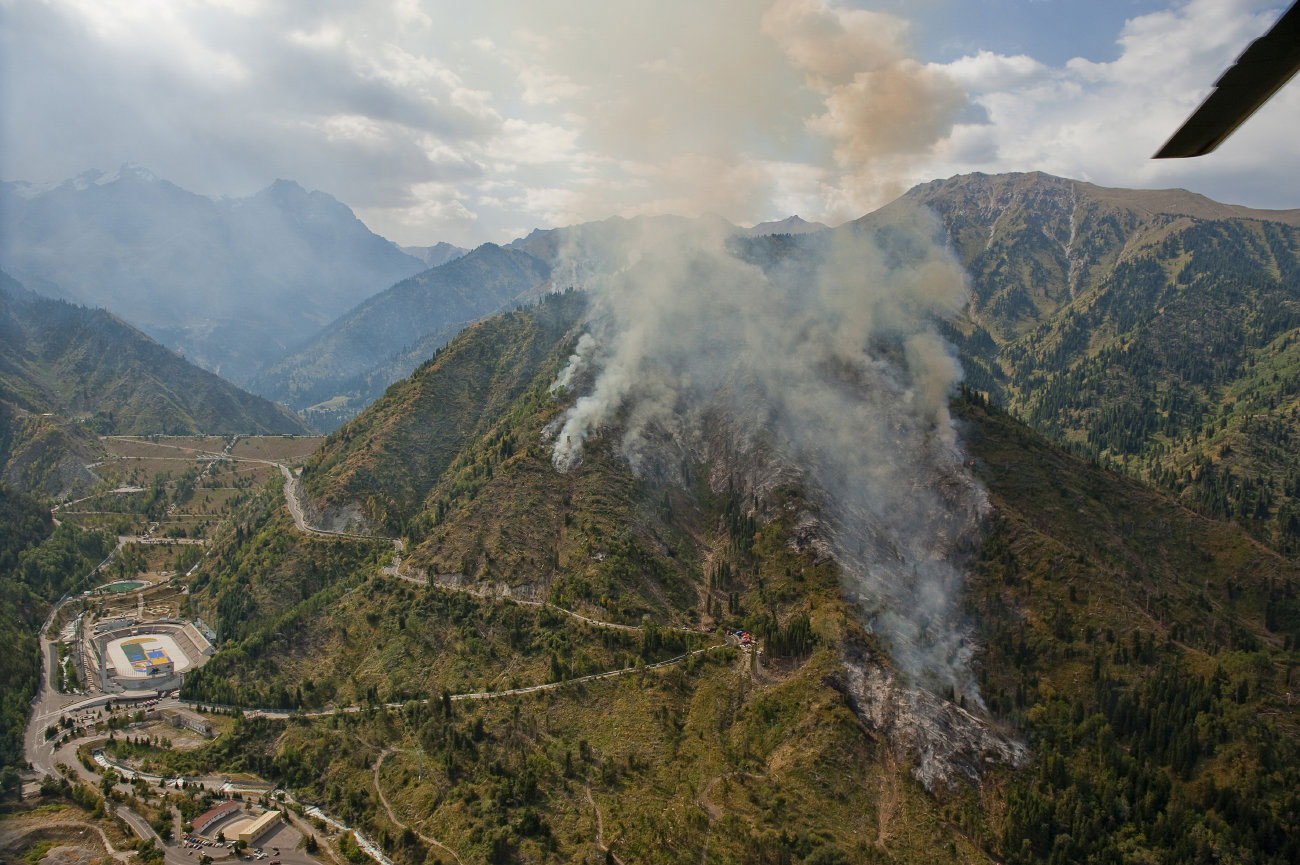

Author photo: Grigory Bedenko
One of the pillars of the cable car Medeo - Shymbulak is located near the mountain Mokhnatki, the cabins pass near the trees. The fire occurred in the evening. Someone threw a cigarette butt (not exactly installed), only the place from which the fire started is known - near the support. The patrols at that time had already ended, and during the night the fire engulfed a large territory. Mountain fires are characterized by the fact that hot air flows go up, which creates thrust. And if on the plain everything depends on the wind, here, even in its absence, the thrust picks up the fire, which is almost impossible to stop. The aggravating factor was the fact that a large windfall of trees had occurred the year before. We were only able to send aviation, emergency situations in the morning, everyone who could. The guests were evacuated from the sanatorium "Enlightened”, and on the second day, when the aircraft was adjusted, it was decided not to flood the fire, but to beat off the fire "on green”, to form a special moist barrier so that the fire did not spread. It was almost impossible to walk around the mountains, there were rocks everywhere, so all hope was for aviation. Two sides of heavy helicopters MI-8 of civil aviation, two sides of MI-171 of the Ministry of Defense with spillway devices worked in the shuttle mode as one mechanism, thanks to which the fire was stopped.
Fire is war. Between the living and the dead.
About walking fire in Alma-Arasan
In 1994, the left side of the Alma Arasan gorge burned. The fire went from the road, from the tourist campfire, began to climb the southern slope. The fire climbed to the ridge, and the forest began to burn along the ridge. Because of the steepness of the slope, they failed to intercept the fire, and it began to develop in stages. The top trees burned in seconds, the burnt branches crumbled and fell down. The fire seemed to be stepping down, it was useless to put out the fire, it was necessary to catch it below. Then volunteers joined in - everyone who could: geologists, tourists, climbers, fire cadets. It was decided to dig a trench below each tree, so that everything would fall in there, and afterwards fill the trap with water. And so, little by little, from tree to tree, they created a barrier line. During the night, one spruce, burning completely at the root, fell almost next to me, probably, therefore, the fire for me was the most memorable. In general, we worked there for a week, the retreat was slow, held back as best we could, and then lucky it started to rain and snow. Some have told us that all is useless, drop this thing! However, if at least one tree defended a day, it is already 10 meters down the slope of the saved nature. For every tree, as in war, we went to the trenches, fought.
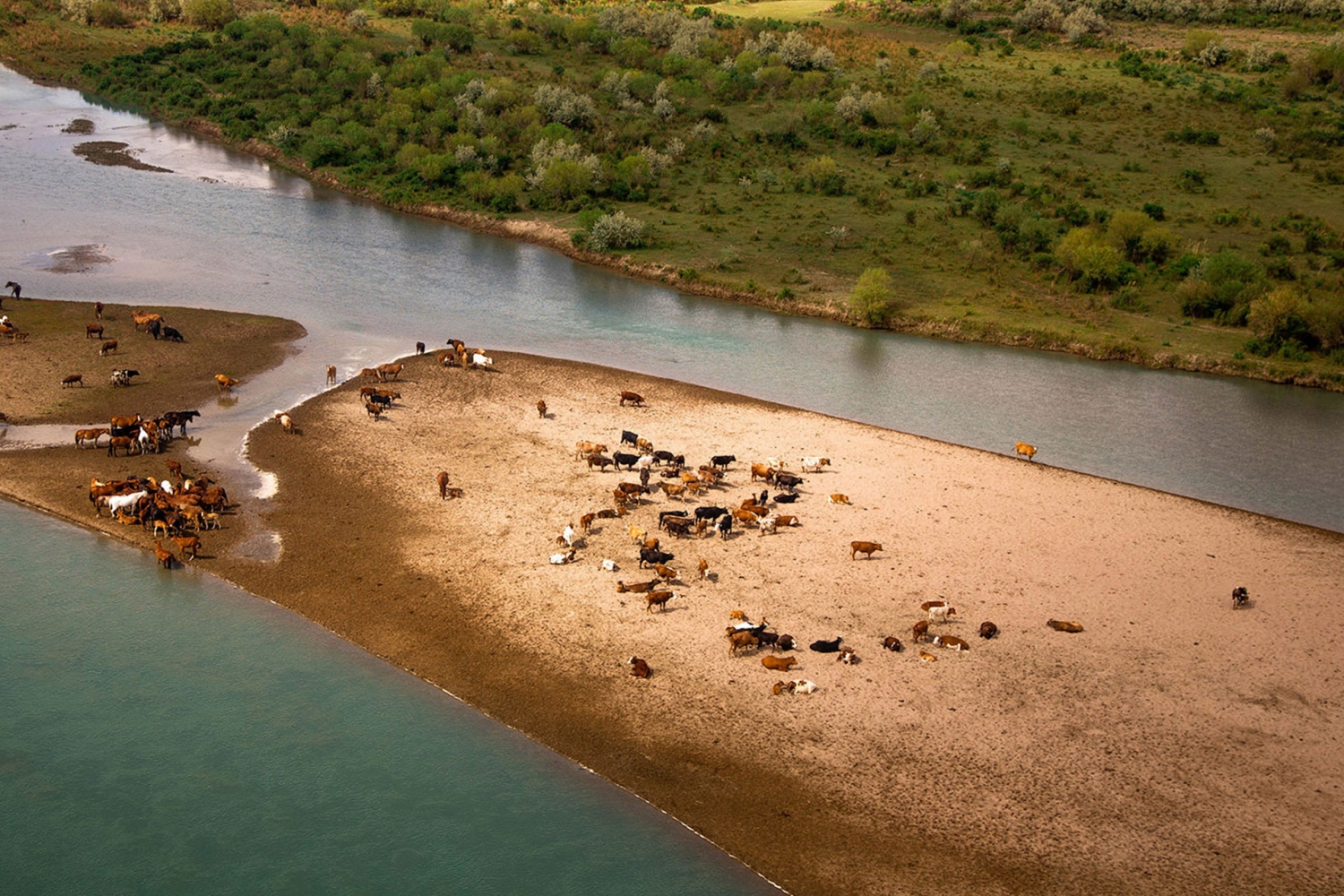
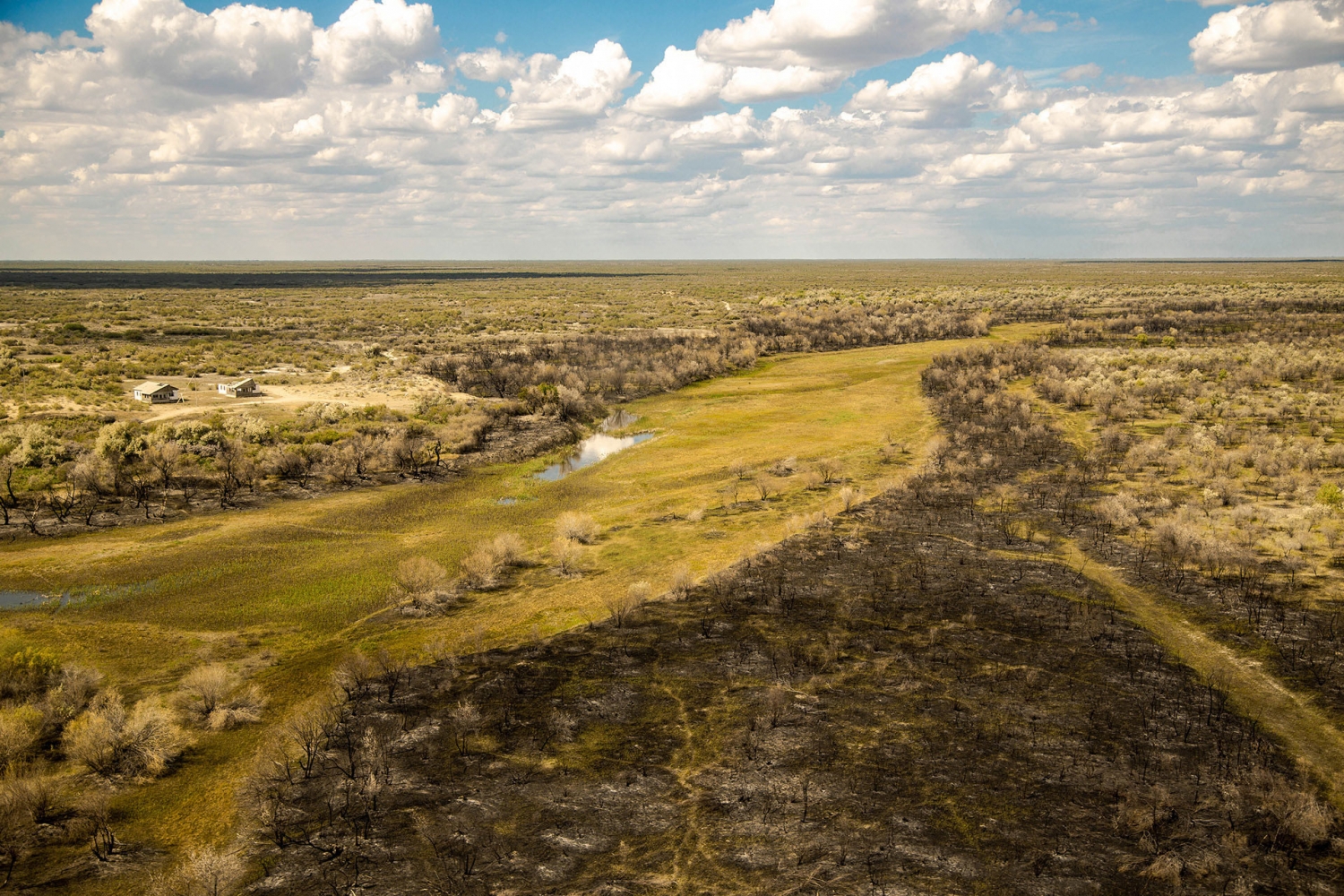


The importance of forest protection
The forest is the main water regulating system. The forest holds moisture, transfers it to underground runoff, enriches river runoff and groundwater. Imagine the Sahara and live in it one day - and you will understand what it is to live without a forest. If a person does not intervene, there will definitely be a major fire, so it is important to stop the fire in its infancy.
If you find yourself in the mountains, rest, then remain a man. Take the garbage with you - also a source of fire.
Anatoly Aisarov, instructor of the air-fire team of the Almaty aviation branch:
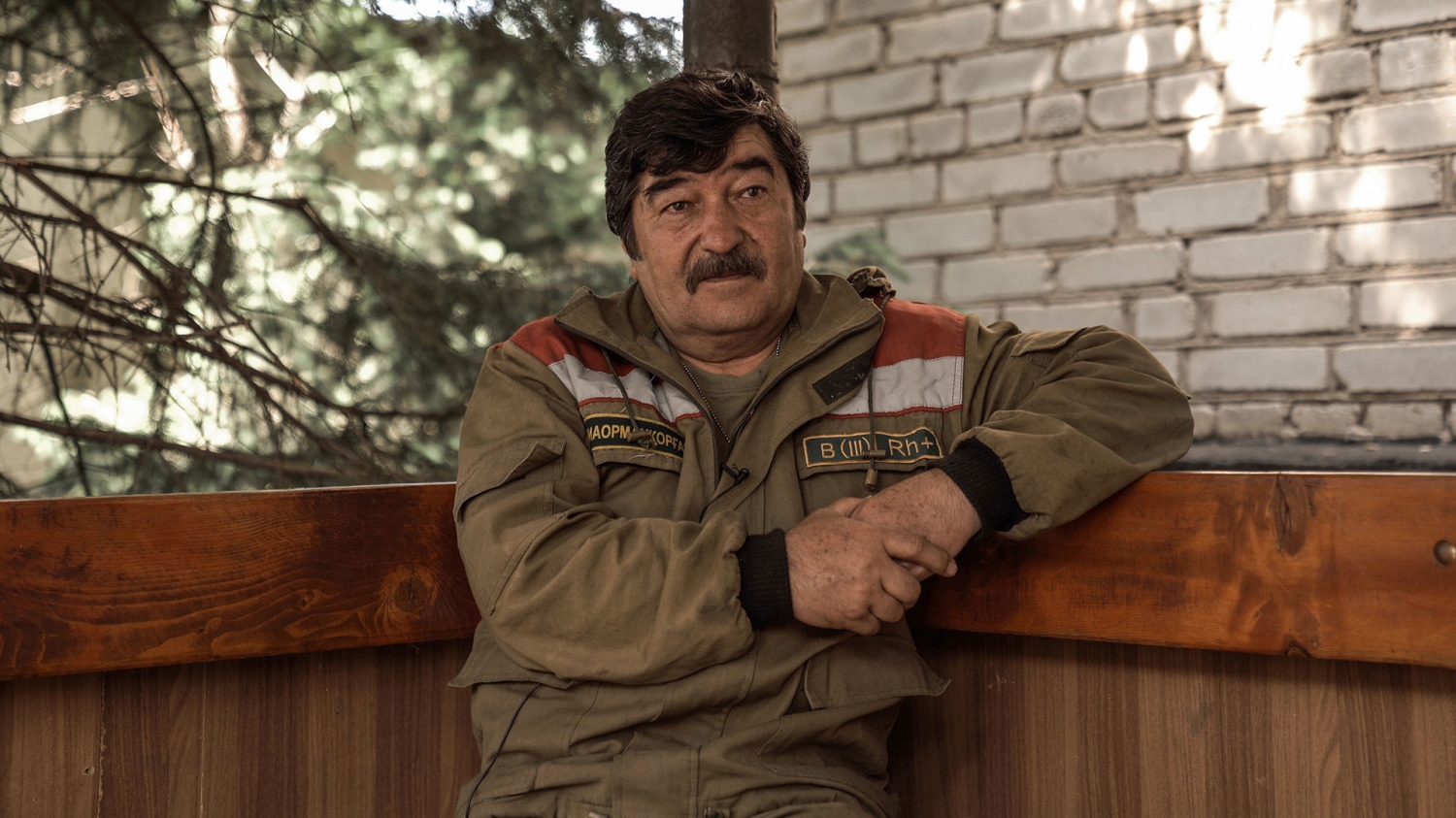

About work
He came to Avialezasokhnu in 1984. The principle of the organization’s work is close to me - nature conservation. We extinguish fires in the highlands and from Kapchagai to Balkhash.
The main task is to detect and extinguish in the shortest possible time, to prevent the spread. In addition to patrolling, my duties include training paratroopers-firefighters. Theory, practice, descents from a helicopter, how to extinguish a fire, use equipment. If the unit is not in a fire, then we repair the inventory, prepare for the next call. From the experience of past fires we try to improve means and methods of extinguishing. We make a set of new ones in spring and start to prepare them. The theory includes fire extinguishing, safety engineering, work with radio communications, practice - all the same items plus descents from a helicopter.
About the first fire
In 84, when I started working, on September 10, there was an autumn fire risk period. That year there were a lot of fires. We went to Aksai gorge, and when the fire was eliminated there, instead of a base, we went to another fire, and so we eliminated three outbreaks within a week. I returned to the unit, and the manager, with a smirk, asked: "Did you like it?” And my arms and legs hurt to the point of exhaustion, for the first time I walked around the mountains, but the feeling that we saved the forest became an incentive for me to stay and work.
About special equipment
In case of receipt of information about the fire, we are going to depart. We load all inventory, backpacks, sleeping bags, dry rations into the aircraft. All in order to last at least three nights. We take motor-pumps, chainsaws, blowers, shovels, firecrackers and rakes to put out fires. We land closer to the edge of the fire in the "window” - the platform on the mountain - or in the forest 5 by 5 meters and begin work. In addition to the above attributes, we have a frother, SLL - backpack forest fire extinguishers. We are assisted by helicopter from the air, delivering to the site P1.00 tanks with water up to 1000 liters or discharging water directly from the air using an APU — a water drain device. On the external suspension of a helicopter there is up to 5 cubic meters of water in the APU.
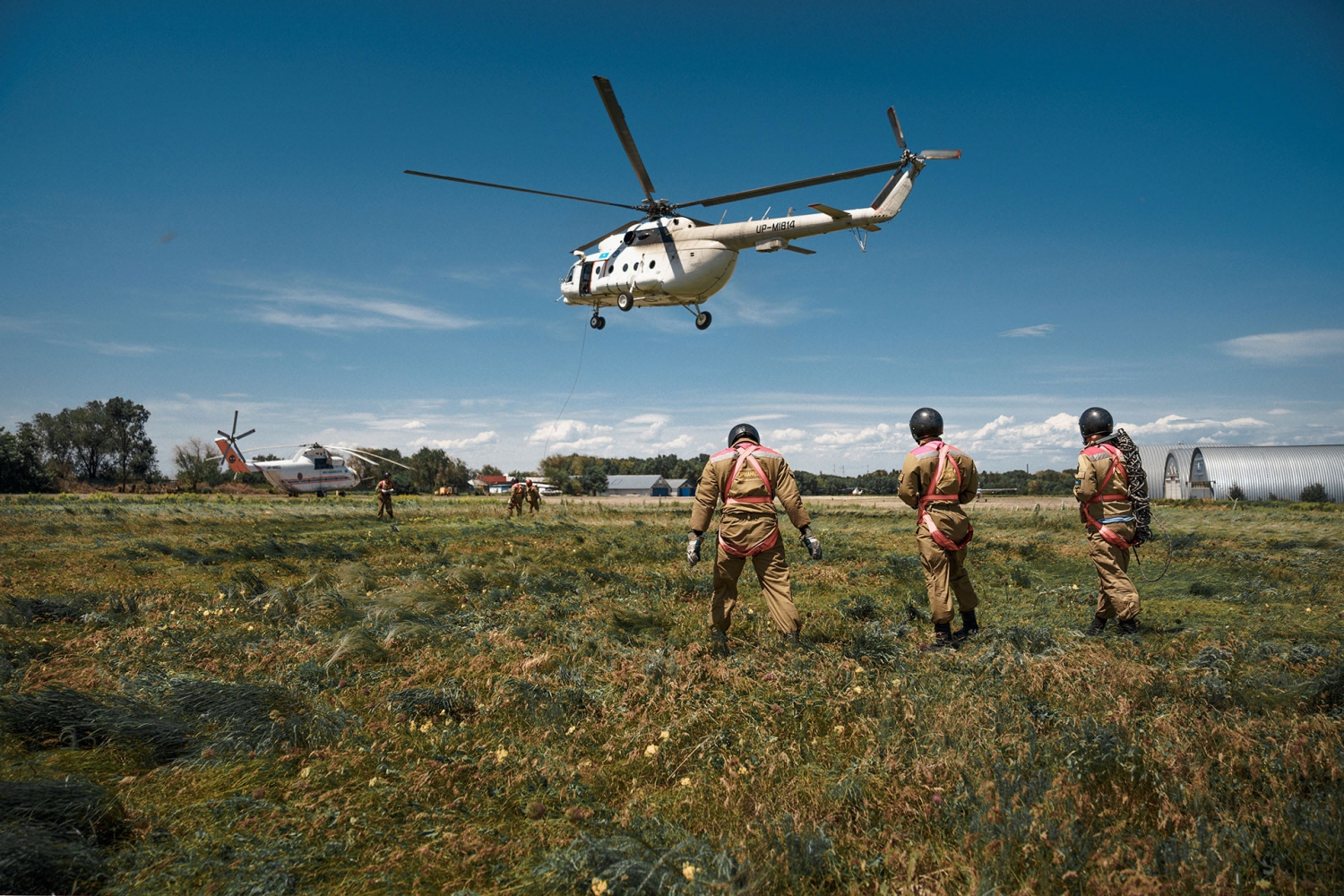

About risks and forest dwellers
Old spruce - a tree with a dry heart, which burns to the roots, and the trunk falls, and people work. When falling raises the soil, and there the stones that fly down. In 2013, during a fire in Alma-Arasan, a rockfall inspector died.
If the tree is burning, what emotions can there be? From the bottom to the top, the needles burn for 40 seconds, something that grew 100-300 years or more. It's a shame, no words ...
There was an interesting case when it was necessary to make annealing - a prefabricated support strip. During a fire on the way, it sometimes happens that there is a "dry mountain" - stones, between which dry grass lies. It is dangerous to walk this way because it can start burning at any moment. Therefore, the firemen anneal it beforehand. They worked on the fire, made a strip before the very top of the mountain and at that moment saw mountain deer. We stopped, started shouting, knocking so that they ran away and did not fall into the fire. Such moments remain in memory, because, in fact, you do two good things: you save the forest and its dwellers.
On the personal qualities of the paratrooper-fire.
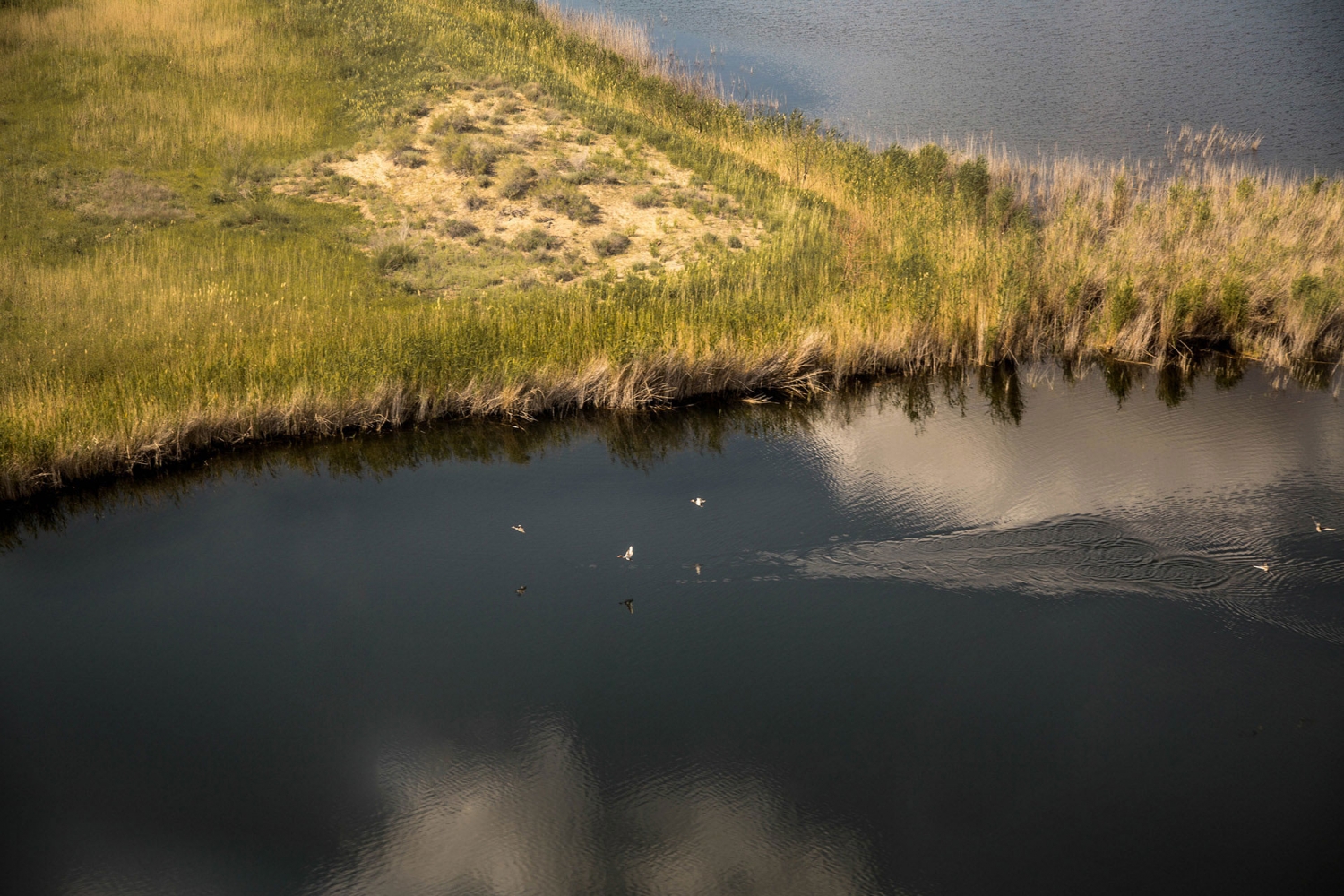

The skills of the paratrooper firefighters are versatile, because when putting out a fire we don’t know in what situation we may find ourselves. Here and first aid, and personal qualities. You should always be sure of your partner. Endurance, courage - this we develop here, as well as physical training. Only one liter of fire extinguisher poured 18 liters of water, and if the mountain slope is even 20 degrees, and half a kilometer before the fire, then without good preparation and perseverance, even 200 meters will not pass.
Vladimir Likhosherstov, the commander of the aircraft, flies on MI-8 MTV and MI-8 AMT
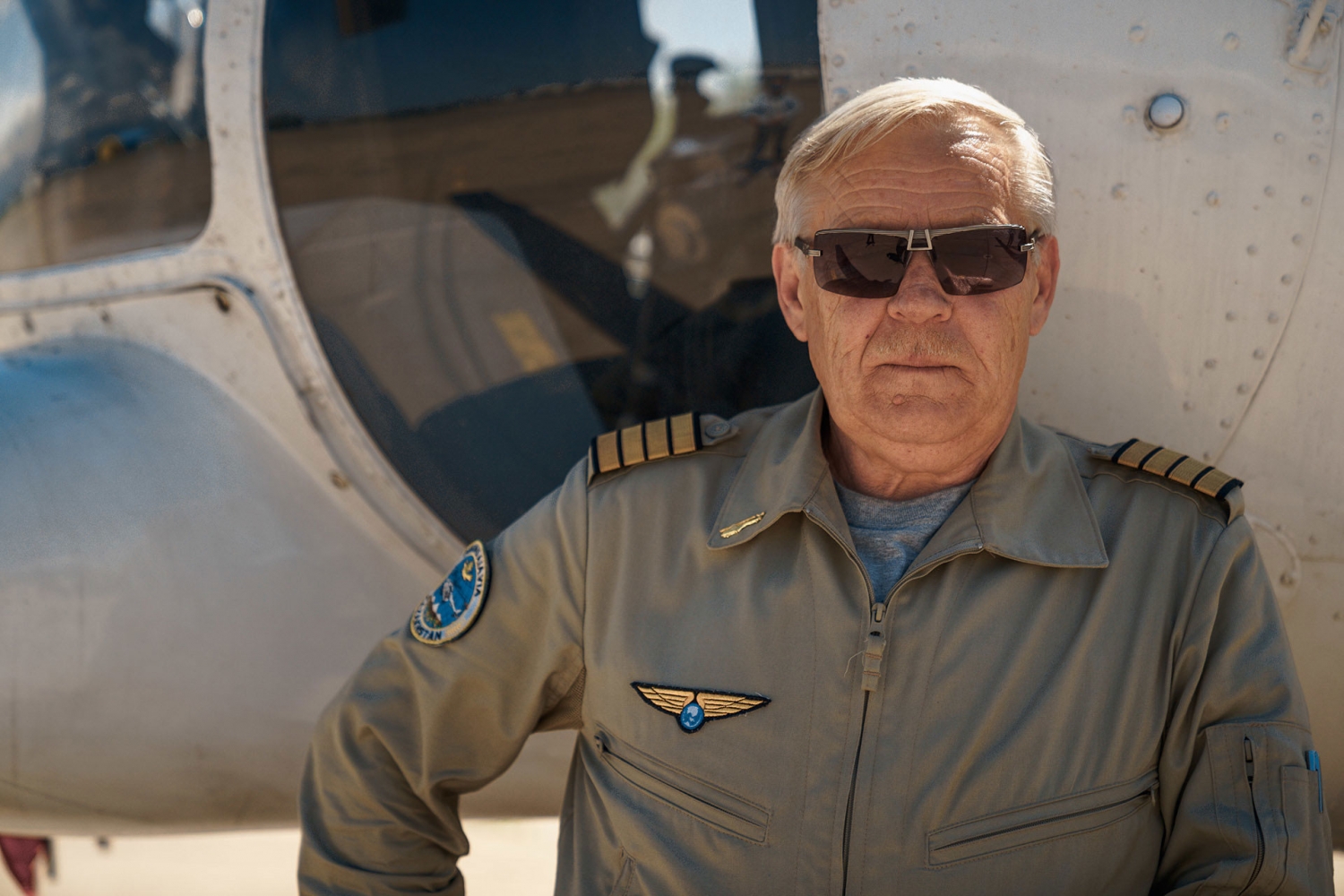

About work
Since 1973, now 46 years old, I am in flight work. I flew more than 19,500 hours. Perform all types of work on the helicopter. This is my whole life. I have been working for almost half a century and do not yet imagine myself outside the airfield.
He started in the 70s, working with geologists in Mangyshlak, Zhanazhol, Aktyubinsk, Buzachi and Atyrau. The commander of the aircraft began in 1980 and in 1982 began to fly in the mountains. From year to year, he received approvals. We, the pilots, every 1,000 meters, the category increases. At the moment, there are only three commanders in Kazakhstan who can land at 4,500 meters in the mountains with pick-up. They started to work on the MI-4 with the aerial protection system; after the MI-8 they began to use a water drain device, which became the basis for extinguishing fires.
As soon as a signal arrives, they should take off within 1.5-2 hours if something is urgent. While on duty, we take off within 1 hour.
We have been learning all our life. He flew in Zailiysky and Dzhungarsky Alatau, and when he first came to the Khan-Tengri area, he saw very different mountains. I threw food, fuel and then climbed to maximum heights in the Karkarala camp, learning new skills for 4 seasons. I thought that now everything had passed, and I ended up in Nepal, I flew 5,300 meters and in the process learned new things again.
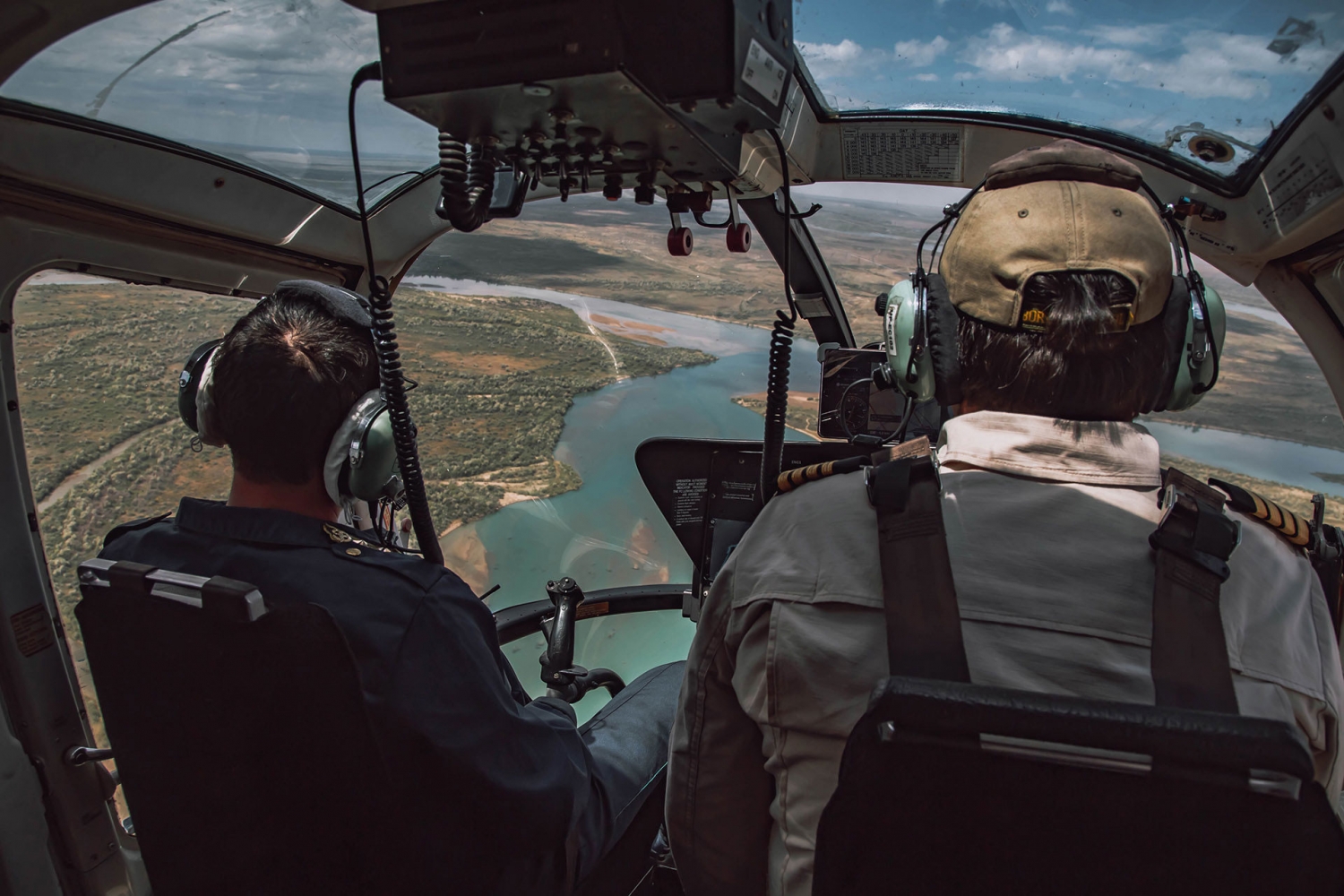

About the features of flights in the mountains
The work is complicated. High temperature conditions that may affect the operation of the engine, and this is a threat to life. You must be able to choose the right landing site for paratroopers, or when you have a spillway device with a capacity of 2-3 tons hanging on a helicopter, this is a piloting technique of jewelry. Plus you are not on a plain, but in a mountainous area, there is a special relief here, it is difficult to go around obstacles, there is at least 15-20 meters from the edge of the trees that must be kept. To keep the helicopter at a drop in our heights is a difficult job, you need to have excellent piloting technique. Therefore, pilots prepare psychologically, for this there is a separate special program. During the selection and training, it is revealed that some fly along the plain, others - in the highlands. You fly in the mountains and see the reaction. At the entrance to the gorge, an experienced eye triggers an eye, and a newcomer shows that he fears that a helicopter will touch the trees. If we walk 50 meters from the slope, and I see it, then a distance of 15 to 20 meters may seem to a person. Therefore, it is necessary to fly from an early age, get used to and not be afraid of the mountains.
On extreme conditions
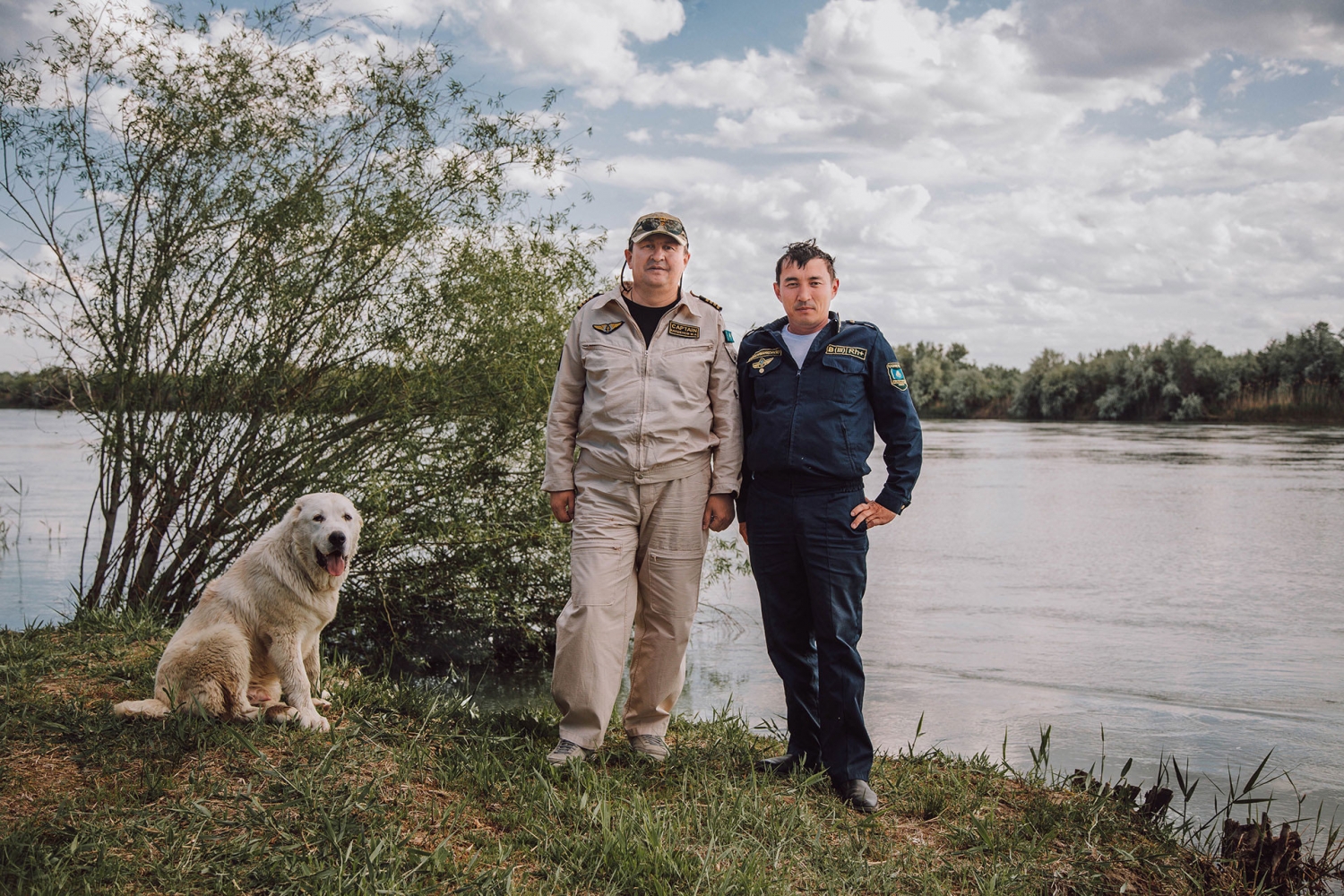
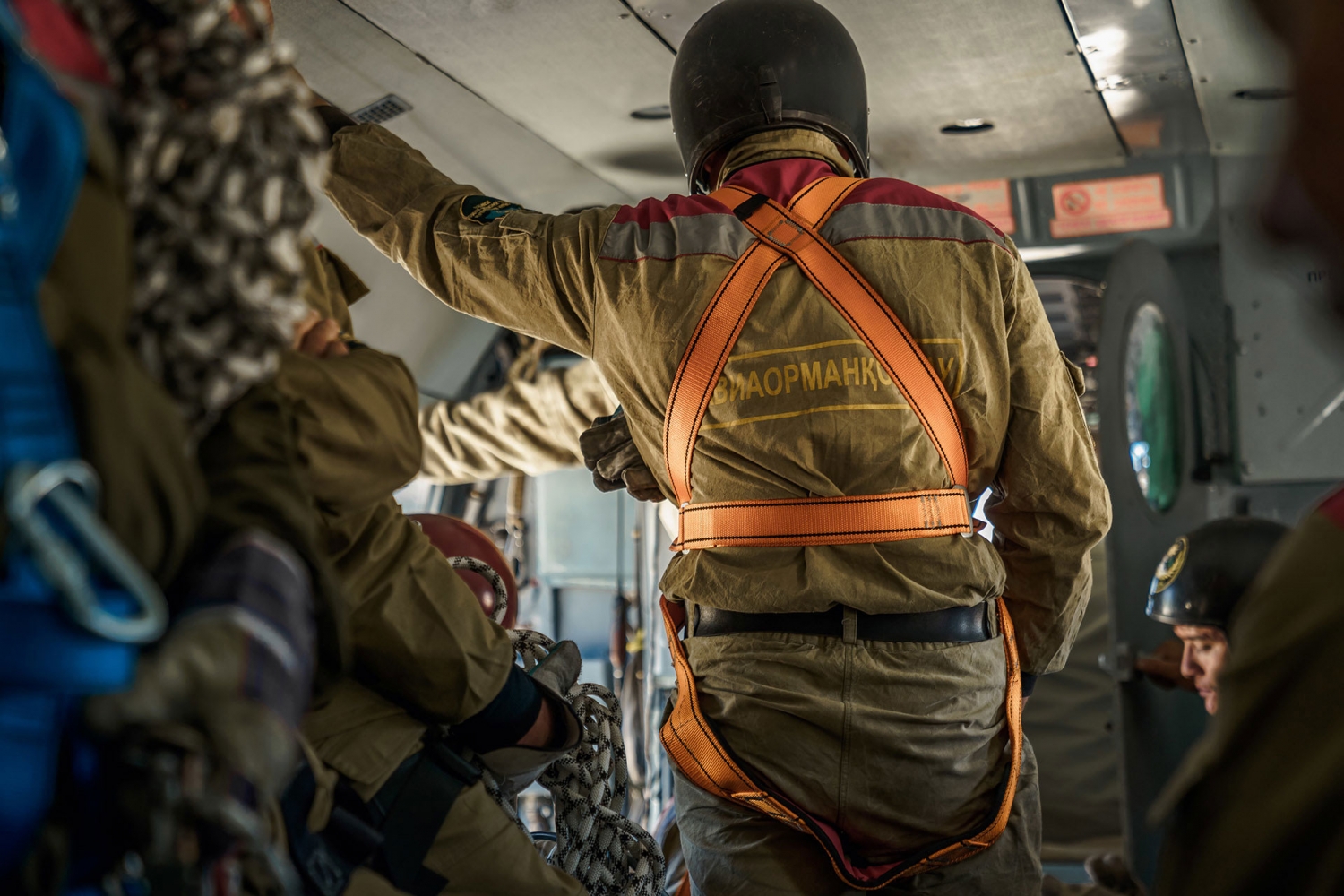
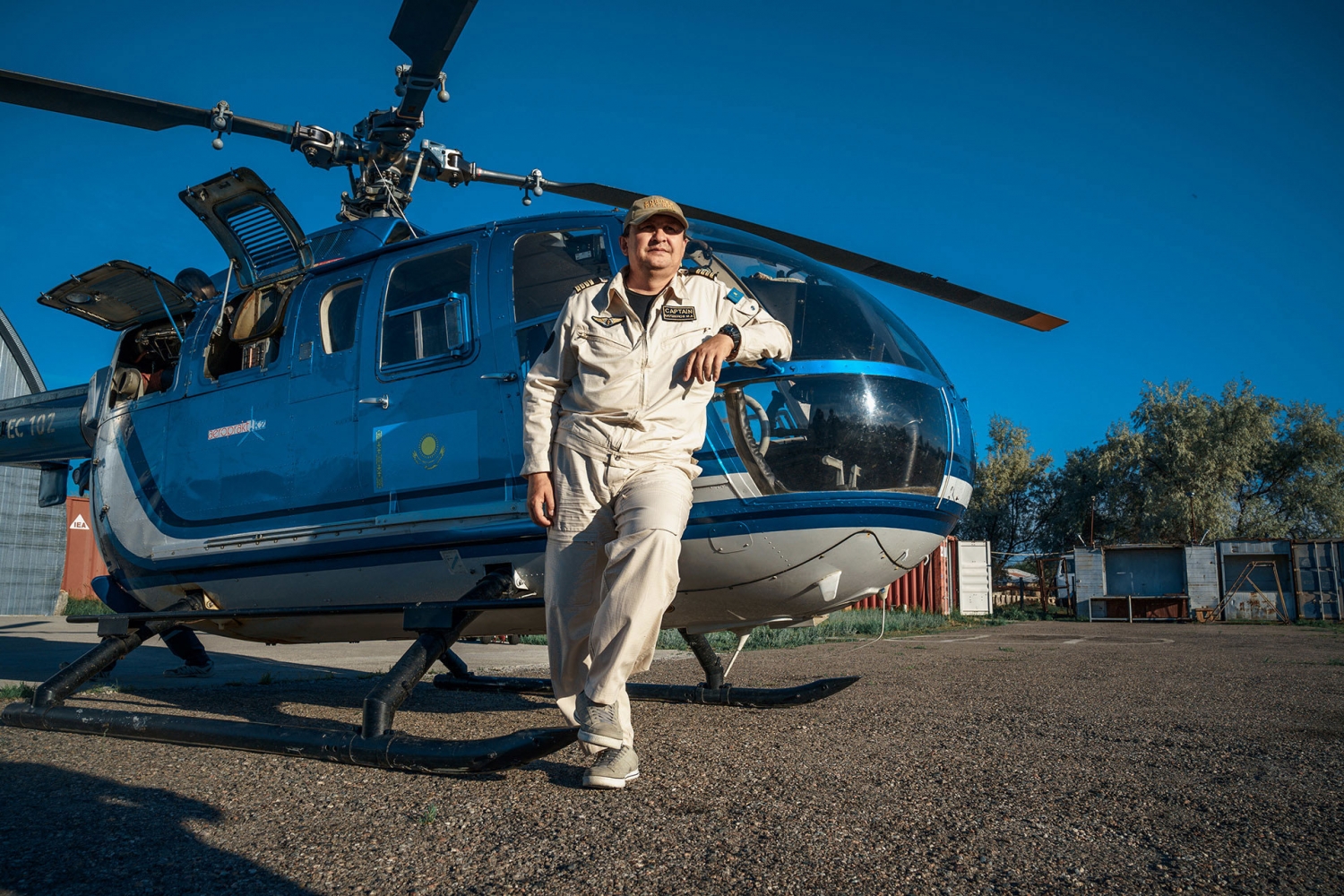



When the forest is burning, the flames and smoke cover everything around, and it seems that it is impossible to put out the fire. When performing work for at least six hours we fly with an external suspension, constantly produce plums, sometimes up to 100 runs of 2.5 tons each. You do not relax for a minute, and sometimes you put out the fire, flew away to get water, come back, and there are already completely different conditions. You need to be prepared for this, always remain vigilant.
During the fire we go along the edge of the fire, we follow the direction of the wind in order to maintain sufficient visibility. Imagine: you reduce to 20 meters above the fire to drain the water, and you get into these extreme conditions. You must ensure that the engine does not overheat, while not falling into smoke.
There are not many forests on the territory of Kazakhstan, so they need to be protected, preserved and multiplied. Yes, even in the steppe, when the reeds are set on fire, there are birds nesting there, all this causes great damage to nature.
Cancer on Gor is proud and sleeps calmly, while on guard of nature from fires, "Avialesookhrana” flies. Take care of nature and follow the rules of fire safety!
